No.939 Friday 14th November 2025
varsity.co.uk







No.939 Friday 14th November 2025
varsity.co.uk






e Independent Student Newspaper since 1947



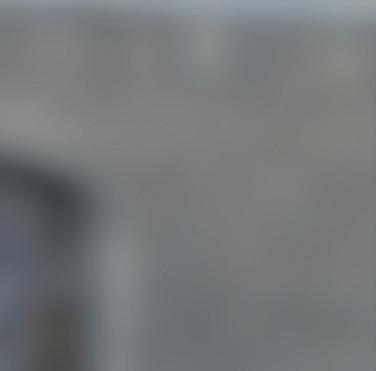












Ben Curtis and Charlie Rowan Editors-in-Chief Lord Smith, the new Chancellor of the University of Cambridge, has said he will place the defence of free speech at the centre of his role, in an exclusive and wide-ranging interview with Varsity
Elected in a close contest in July, Smith told Varsity that there have been “occasions when Cambridge has hit the national press over particular freedom of speech issues”. He said his “number one” priority is “the defence of academic freedom and freedom of speech”.
While maintaining his commitment to freedom of speech, the Chancellor defended the University’s decision to seek injunctions on protestors over the last year.
Although he acknowledged the University should “enable and encourage protests,” the Chancellor insisted that Cambridge had “been right to seek very speci c injunctions to protect the ability of all students to be able to take exams”.
Alongside freedom of speech, the Chancellor outlined his other priorities.
ey include “championing […] Cambridge as a centre for innovation and



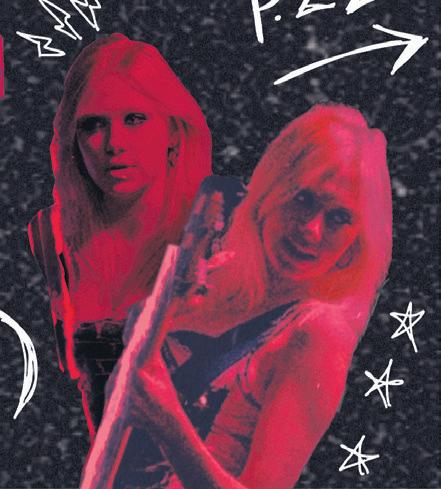


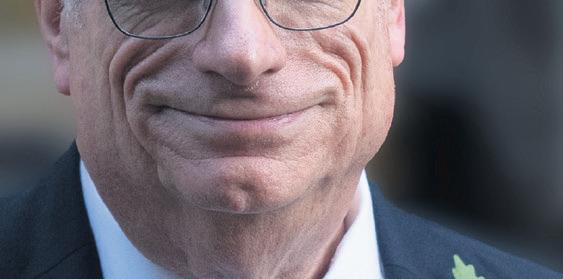
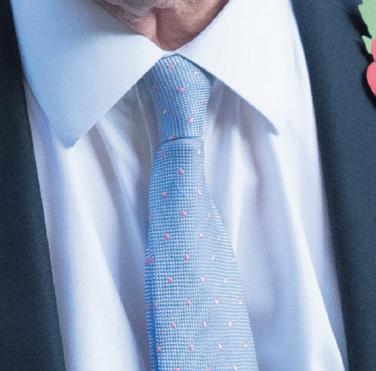
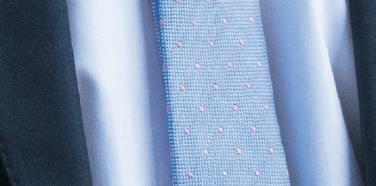
a catalyst for growth,” as well as “enabling the colleges and the University to work more closely and collaboratively together”.
Lord Smith also stressed the need to “make even further progress on widening participation” and make Cambridge a “welcoming and inclusive place” for any prospective student.
This statement comes amid the launch of the Cambridge University Society of Women (CUSW), an organisation criticised as “transphobic” by other student groups due to its criteria for membership, which is restricted to

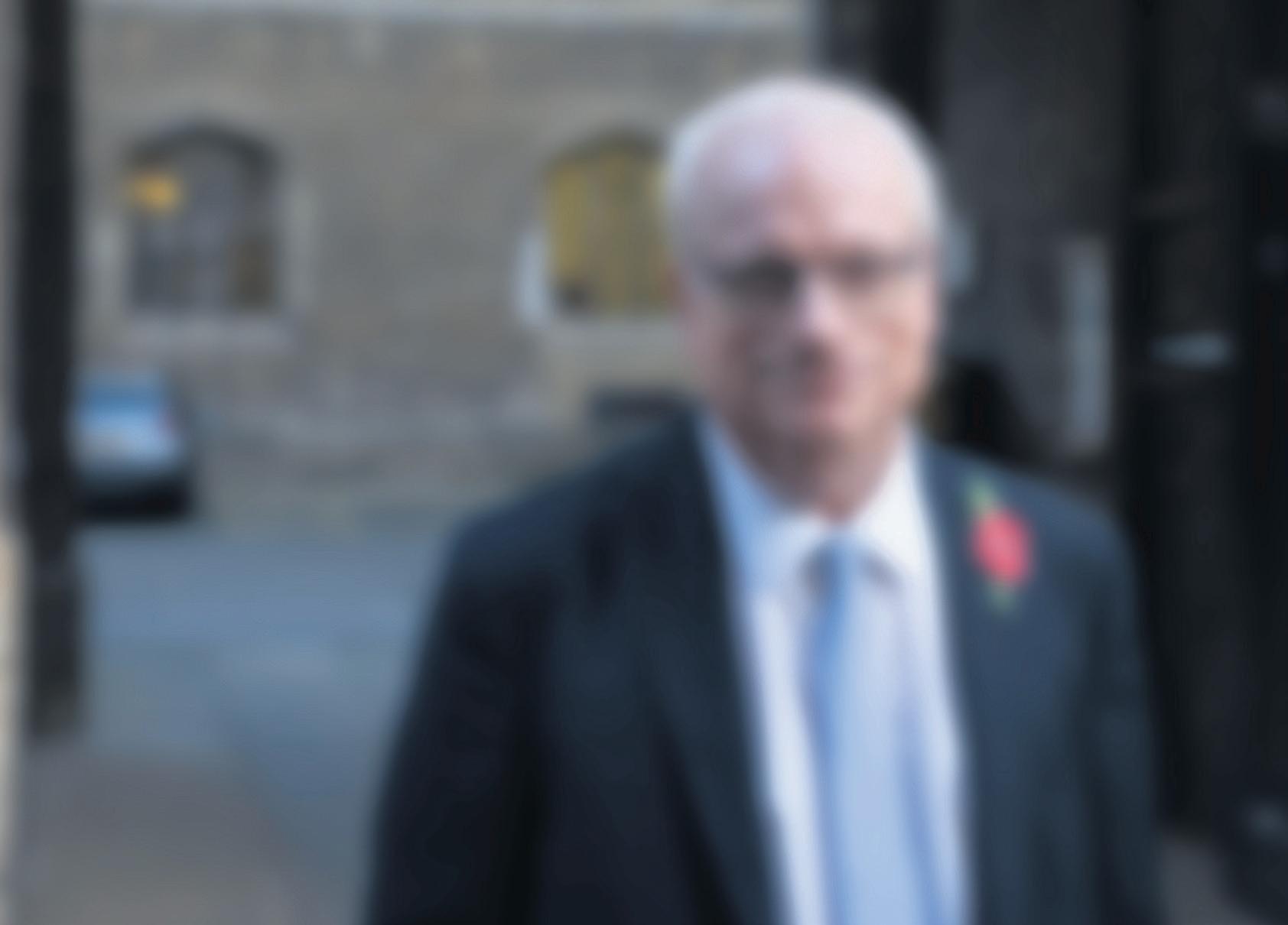

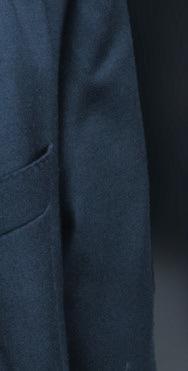
those designated as women at birth.
Asked about the ongoing debate surrounding women’s only spaces, the Chancellor said that “there is an important ability [sic] for women to be able to feel safe in spaces that are designated for them”.
However, he also said that the University must ensure transgender students “have spaces available to them as well” and trans people must have their needs “genuinely met”.
When pressed on the issue, the Chan
● Russell Group spent over £1.3m on legal advice
● Uni heads claim legal orders do not restrict protest freedoms
● Cambridge currently holds a 12-month injunction on protests
Wilf Vall
Associate Editor
e University of Cambridge and its colleges has spent over £400,000 on legal action to restrict protest on its sites – the most of any university in the UK.
e central University, along with Trinity College and St John’s College, paid law rms £402,868 to help tackle encampments on their sites according to freedom of information requests. is included obtaining high court injunctions to ban protests at the University’s head o ces and College sites, a move that was labelled an “authoritarian re ex” by a senior academic.
Universities across the country spent almost £1.4 million on legal advice to tackle encampments, with elite Russell Group institutions making up the vast majority of the spend.
Cambridge currently holds a 12-month injunction against all protests on its Old Schools site, which hosts graduations and the University’s administrative o ces, and Greenwich House, its nancial centre.
e sites had been subject to multiple encampments over 2024 and 2025, with

Cambridge constantly seeks to shape its self-image. Some stories slot neatly into this construction, others complicate it. What matters, unfortunately for the University, is what Varsity puts on its front page.
cellor on the latest developments in student life. Smith was reticent about the new Cambridge University Society of Women (CUSW) and their presence within Cambridge and national papers.
inson alum Robert Webb, who re ects on his experiences of stardom, from rejection at the ADC to the enduring success of Mitchell and Webb (p.10).
In this edition, our front page stories are marked by contrast (p.1). In an exclusive interview, the rst in 800 years, with the newly-elected Chancellor, Lord Smith, he outlined his priorities for the University. Top of his list is “the defence” of “free speech”. Alongside this in-depth conversation sits our latest investigation into the University’s injunction spending, where we reveal that Cambridge and its constituent colleges splashed over £400,000 on lawyers to restrict encampments on their sites. e dissonance between public commitments to free expression and the reality of legal action is stark. Beyond this charged debate, we pressed the Chan-
He acknowledged both sides of the discourse, but urged students to “humanise and personalise” discussions of transgender people.
We also analysed the cash behind the controversy, revealing that CUSW had received over £13,000 in donations, including £3,000 from the Russianborn billionaire Alex Gerko, who has previously shown no public interest in Cambridge life (p.5). Cambridge is not immune from a wider, national culture war.



On the lighter side of student life, we have bread being thrown from student windows (p.7), and a dive into colleges raking in hundreds of thousands in Hollywood money (p.9). One man who knows how to see the funny side is Peep Show star and Rob-
Meanwhile, in Vulture, sparks y (and zzle out) in Lifestyle, where we follow up on a double date organised by our Varsity matchmakers. (p.20). For your dose of 90s feminist punk, our Fashion team explore the Riot Grrrl aesthetic and argue for its return (p.22). Alternatively, in the aftermath of a hectic Week 5, our Arts team encourage a slower pace of life following a visit to a Medwards exhibition on the importance of rest (p.24). Whatever made you pick up the paper, we hope it o ers enough relief to keep you going through the nal stretch of term.



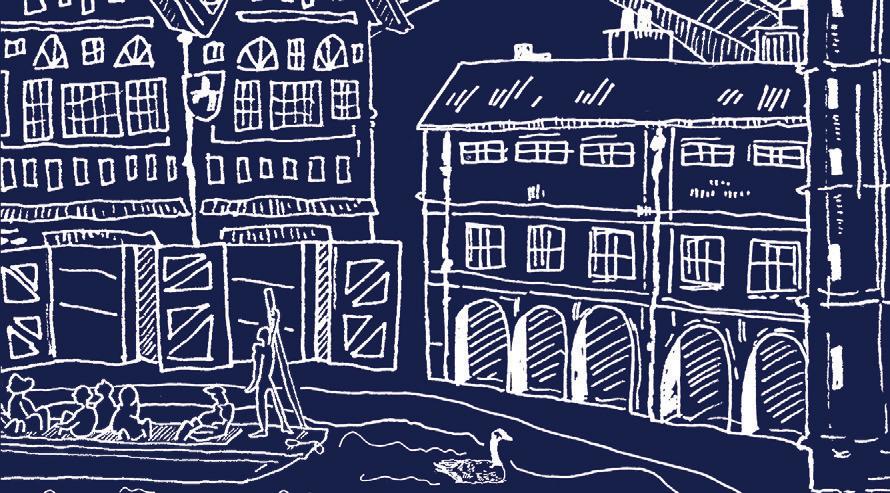
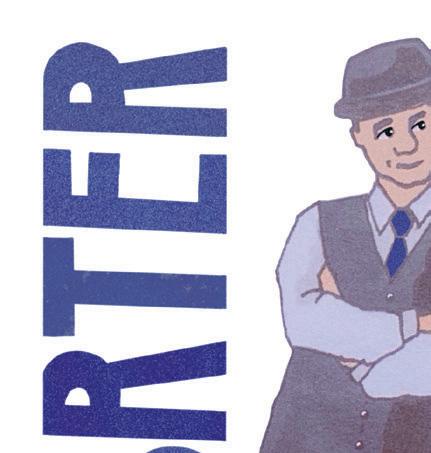
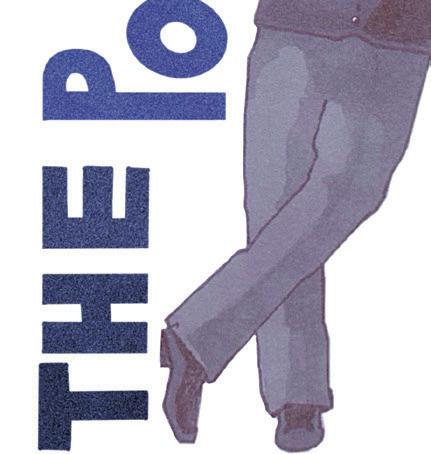
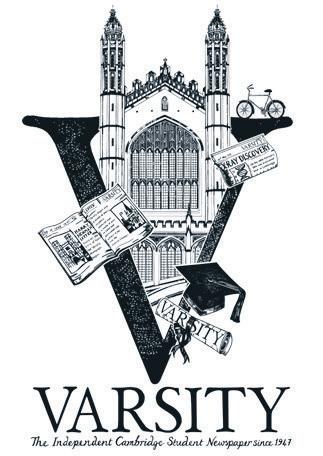
editors Ben Curtis & Charlie Rowan editor@varsity.co.uk
deputy editors Kezia Douglass & Calum
MICHAELMAS 2025
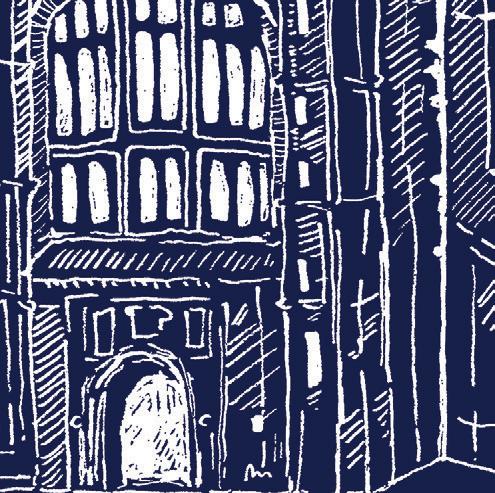


Murray deputyeditor@varsity.co.uk
vulture editors Daisy Bates & Ellie Buckley magazine@varsity.co.uk
news Georgie Middlemiss & Faron Smith (Senior); Alex Brian, Bethinn Feely, Max La Bouchardiere & Maria Eduarda Paixão (Deputy) news@varsity.co.uk
comment April O’Neill, Duncan Paterson & Daisy Stewart Henderson opinion@ varsity.co.uk
features OliviaGoodman&EmmaTenzler features@varsity.co.uk
interviews MariamAl-Badry,TaraBuxton & Wilf Vall interviews@varsity.co.uk
science Bibi Boyce & Ruby Jackson science@varsity.co.uk
sport Joss Heddle-Bacon & Ben Lubitsh sport@varsity.co.uk
lifestyle Jess Gotterson & Gabrielle Saraway lifestyle@varsity.co.uk
arts Emily Cushion & RyanVowles arts@ varsity.co.uk
fashion Mary Anna Im & Flossie Bullion fashion@varsity.co.uk
fashion shoot co-ordinator Chloe Jacob
film & tv Amanda Ljungberg & Julia Ongking lmandtv@varsity.co.uk
music Daisy Cooper & Seun Ige music@ varsity.co.uk
theatre Kaitlyn Butterly, Daniel Kamaluddin & Josh Pritchard theatre@varsity.co.uk
photography editors Amika Piplapure & Ruying Yang
illustrations editors Lyra Browning & Iris Chapman
chief sub-editor Saphia Arshad subeditor@varsity.co.uk
associate editors Ben Birch, Sophie Ennis, Alice Mainwood, Wilf Vall, Anuk Weerawardana associate@varsity.co.uk
business manager Mark Curtis business@ varsity.co.uk
varsoc president Wilf Vall president@ varsity.co.uk
varsity board Dr Michael Franklin (Chairman), Dr Tim Harris, Michael Derringer, Mark Curtis (Company Secretary), Sophie Ennis, Hugo Gye, Wilf Vall & Anuk Weerawardana (Directors), Lotte Brundle (Guest) & Zoah HedgesStocks (Guest)
● Lord Smith urges colleagues to consider divestment report ‘carefully’
● He wants to ‘humanise and personalise’ discourse surrounding trans students
● In first message to students, Smith tells them to ‘hold fast to [their] beliefs’
to say it”.
cellor seemed hesitant to commit to a University stance. While acknowledging that the University should remind the organisation “of the importance of inclusivity and welcome,” he told Varsity that “it’s not up to the University to tell the people who are creating this society what they should be doing”.
Asked about the tone of the discourse surrounding trans students in Cambridge, Smith seemed disappointed, and stressed the need to “humanise and personalise” the debate. He said that “we are talking about individual human beings here, frequently going through a really di cult and challenging period of their life, and our job has to be to support them”.
Yet the Chancellor’s commitment to free speech remains unshakeable. He mentions the philosophy professor Kathleen Stock, an academic who left the University of Sussex in 2021 after being criticised for her views on gender identity. “I disagree strongly with much of what Kathleen Stock has to say,” he told Varsity, “but I would defend her right
In Smith’s view, academic freedom has to be “the bottom line”. He rejects “kowtowing to anyone […] trying to determine what a professor can or can’t research”. is comes amid the news that academics at She eld Hallam University were reportedly intimidated and pressured by Chinese o cials.
Smith doesn’t want to cut ties with China, arguing that the University “can’t simply refuse to have anything to do” with “an increasingly important part of the current world,” but argues that “we need to get the balance right”. is freedom of expression, he insists, should also extend to students. Once again, he rea rms and reinforces his commitment to “protests that don’t provide […] disruption”. Yet this “very strong” support, he views, is consistent with the University’s costly use of injunctions to limit protest on its property, and some college-owned land.
A Varsity investigation has revealed the high spending involved with this action, as Trinity College, St John’s College, and the central University spent over £400,000 on law rms to help
tackle encampments on their sites. is spending is especially controversial in light of the Board of Scrutiny’s report, which warned that Cambridge’s nancial position “remains of concern”.
e report projected a de cit of £39 million for the academic year 2025-26, albeit lower than in previous years due to controversial spending cuts – which Varsity has reported will deepen after a miscalculation over the rate of in ation. While the Chancellor accepted that “the University’s nances are facing challenges,” he was keen to stress the nationwide picture.
Smith told Varsity that “this is something a ecting higher education across the country”. e Guardian estimates that up to 10,000 jobs could be lost across the sector amid restructuring, and the Chancellor seemed eager to address the entrenched problems. He said he is “limbering up” to argue with the UK government.
“If [the government] are serious about wanting to promote economic growth, universities are a key part of that,” he urges. Smith envisions a bargain, whereby universities can “ramp up their abil-
ity to stimulate growth and educate the future generation of creative people in return for better funding of universities”. Smith acknowledges Cambridge’s unique position and ability to challenge the government and in uence national debate. Yet when asked about the University’s recent commitment to partial divestment from arms industries, the Chancellor is more circumspect. “It is not a simple issue,” he says, and it is “up to the University Council to consider the Virgo report as carefully as they possibly can”. Smith is keen to stress that “it is not my place to tell them what to do”. However, the Chancellor doesn’t hesitate when expressing his disappointment in the University’s alleged sustainability failings. e Board of Scrutiny claimed that the University is giving “the impression that sustainability is no longer a priority”. As a former chairman of the Environment Agency, it is not surprising that Smith feels the University’s sustainability objectives are “really important”. He directly urges his colleagues, who take the decisions, to “hold fast to the sustainability objectives that they have, and the progress to net
zero” which he wants to see “as rapidly as possible”.
His conviction on this subject seems clear. While Smith admits his role is “primarily ceremonial,” and lacks the “direct decision making” of previous roles in government; he’s assured of the Chancellor’s potential to “nudge, persuade, and steer” debate and decisions within the University. Whatever decisions he steers, however he wields his in uence, students will feel the e ects. e new Chancellor makes clear his message to these students: he tells them to “hold fast to your beliefs”. Smith urges them to “be determined in what you study here, and what you go on to do in the world, to make a di erence”.
As to the di erence he hopes to make during his tenure, Smith chuckles at the mention of his legacy in a job he began only a few months ago. “I would hope that by the time I depart as Chancellor, Cambridge will be a thriving, innovative, and inclusive University, and that I may have been able to play a little bit of a part in ensuring that it gets there”.
Cambridge for Palestine (C4P) occupying the Senate House lawn in summer 2024 to put pressure on the University to cut ties with arms companies.
e encampments were eventually disbanded after the University agreed to review all of their arms investments with a student working group.
C4P then occupied Greenwich House and the Senate House in late 2024 after they accused the University of backtracking on their promises to divest from companies associated with Israel.
e ndings of the working group were published last month, recommending the University to divest from all companies involved in the production of weapons illegal in the UK.
request for a 5-year ban on pro-Palestine protests at the sites in February being rejected by the High Court. Mr Justice Fordham, the judge on the case, instead issued a 48 hour injunction to prevent disruption to graduations occurring that week.
But the University would later be granted a 12 month injunction on all protests at the sites in July, following a string of hearings.
Trinity and St John’s requested injunctions following occupations by C4P on their sites in May, with the group again accusing the University of “watering down” their commitment to divest from arms.
Magdalene College also obtained an injunction against protesters following an encampment otilla occupied their riverside court in June. However, the College refused to disclose the amount they spent on legal fees, claiming that doing so would harm their “commercial interests”.
Both Trinity and John’s originally claimed that disclosing their spending would endanger their ability to negotiate future legal services but eventually conceded that publishing gures was in the public interest.
legal action against protesters, with a motion to limit the ability of the University to pursue injunctions without approval from its governing body being voted on November 24th.
£230,000
How much the encampments reportedly cost the University in additional security, cleaning, and NDOs
tively.
Multiple high-pro le Universities that pursued injunctions also rejected requests for information. Among those was the University of London, who claimed that disclosing their legal spend would “provide impetus for further inaccurate public and media commentary” on their legal action.
is also comes following OfS guidelines on tackling protests advised against “sweeping” protests bans on campus.



only obtained after a lengthy legal battle, with an



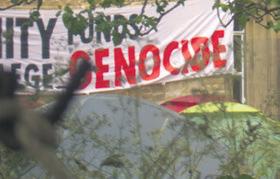

e Colleges obtained temporary injunctions within 48 hours of the occupations, and were later granted a 12 month protest ban.


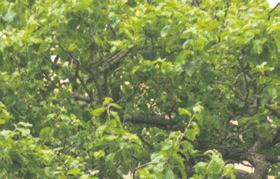
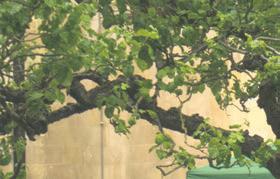

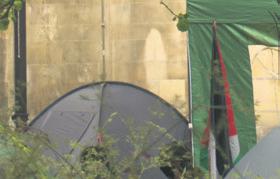

e use of injunctions to tackle encampments has been widely criticised by Cambridge’s academics, with Professor Jason Scott Warren, a member of University Council, labelling them “repressive authoritarianism”.



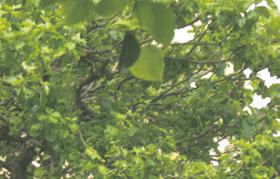
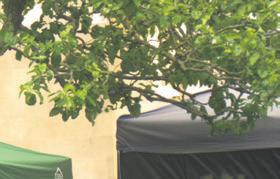
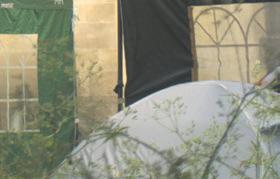

Scott Warren is currently leading a campaign to prevent the University from pursuing




Cambridge has consistently denied any allegations that their injunctions limit freedom to protest, with a University spokesperson telling Varsity they “have sought injunctions to protect the right of our students to graduate and for sta to carry out their work. It does not restrict the important right to legal protest. ere are many ways protests can take place and voices can be heard”.
e original applications for injunctions also claimed that encampments cost the University “at least £230,000” in additional security, cleaning the sites, and pursuing non-disclosure orders against protesters who accessed condential documents in Greenwich house.
e costly legal battles also come at a time of signi cant stress for Cambridge’s nances, after they were forced to make 5% cuts across all departments to tackle a funding de cit of over £50 million.
Across the country, Queen Mary’s University of London and Cardi University boasted the second and third highest spends on protest lawyers, racking up fees of £246,513 and £190,600 respec-
e guidelines lay out the “practicable steps” universities should take to ensure legal free speech among sta and students, and how complaints about breaches of free speech should be dealt with.
is included suggesting that legal injunctions could be used to protect speci c sites used for graduations from protests. e advice warned against stricter measures, such as a 12-month ban on pro-Palestine protests on the lawn and university spaces within a 400 yard radius.
A spokesperson for the OfS told Varsity: “Freedom of speech includes the right to peaceful protest within the law. is right is fundamental, but it does not extend to unlawful expressions of support for terrorism or proscribed organisations.
“Our guidance also recognises that institutions may need to regulate the time, place, and manner of protests or demonstrations. It is for universities to decide how to provide themselves with assurances their actions are in line with their free speech requirements, including when it may be appropriate to seek legal advice,” they continued.
Charlie Rowan Editor-in-Chief
e University of Cambridge has cancelled the appointment of its new Chief Financial O cer (CFO), citing the “need to maintain stability” during a period of “ongoing transitions” at the top of the institution.
In an update released on “senior leadership positions” on Tuesday (11/11), the University con rmed that Rita Akushie – announced in September as the next CFO – will no longer take up the role.
e reversal comes as Cambridge grapples with mounting nancial pressure.
In its statement, the University said:
“Following recent changes and ongoing transitions, the University has decided not to proceed with the appointment of a new Chief Financial O cer at this time. is decision re ects the need to maintain stability and continuity in our leadership team and is in no way a reection on the successful candidate.
“As a result, and with considerable regret, we con rm that Rita Akushie will not now be joining the University as our new CFO. We and Rita had been looking forward to her joining us, and we are very grateful to Rita for her engagement in this process.”
e University added that Anthony Odgers, the current CFO, has “kindly agreed to continue in his role to help guide the University through this period of change”.
Cambridge stressed that the decision
comes amid a series of departures in senior administrative posts, including a prolonged absence in the Registrary’s o ce.
“Interim arrangements are now in place to cover for the Registrary’s prolonged period away from the o ce,” the statement continued. “ ese roles are key to providing strategic and operational stability and leadership to the University, and we would like to assure you that organisational resilience will continue to be of the highest priority.”
In a blog post, the 21 Group said: “Despite the delicate wording, this has ‘expensive disaster’ written all over it.
“Walking away from a contract like that can’t have come cheap. It likely cost the University very serious money, perhaps six or seven gures. e only reason to take such an expensive step would be if continuing with the appointment posed an even greater risk.”
e blog also cited one of its commenters, who said: “ e new reporting lines e ectively sidelined the Registrary, it could even amount to a claim of constructive dismissal. at might explain why the University abruptly reversed course – better to pay o one contract than risk a much bigger legal and governance crisis.”
Akushie was due to join in December 2025 from the University of London, where she has served since 2020 as Pro-Vice-Chancellor (Finance and Operations).
A chartered accountant with experience across higher education, housing and the charity sector, Akushie also


chairs the Audit Committee of HICL Infrastructure plc, a FTSE 250 investment fund managing £3bn in assets internationally.
She had been expected to lead Cambridge’s Finance Division and sponsor its ‘Finance Transformation Programme’, reporting directly to the Vice-Chancellor.
In September, Deborah Prentice, the Vice-Chancellor, said: “I am delighted to welcome Rita as our new Chief Financial O cer. She impressed the interview panel with her vast experience, particularly in nance transformation, her passion for higher education, and her commitment to inclusive leadership.”
Meanwhile, Akushie said: “Joining the University of Cambridge is a tremendous honour. I am inspired by the opportunity to lead a transformative nance agenda that supports the University’s long-term strategic ambitions. I look forward to working collaboratively across the University to build a nance function that is modern, transparent, and aligned with Cambridge’s world-leading mission.”
e University has not indicated when it will restart the recruitment process for a new CFO. Odgers had been scheduled to step down on 31 December 2025.
As Varsity reported last month, the University is to implement deeper spending cuts than originally planned after miscalculating the rate of in ation in its two-year nancial plans.
is came a year after the University racked up a heavy de cit.
e University of Cambridge and Rita Akushie were contacted for comment.

Wilf Vall
Associate Editor
Dame Sally Davies, master of Trinity College, will step down from the role next year, Varsity can reveal.
Dame Sally, who was appointed master in 2019, will o cially end her tenure in October 2026. She was the rst female master of Trinity College, having previously served as the UK’s chief medical o cer.
Professor Davies’ departure comes a year after she caused signi cant controversy by telling students that Trinity College had “no interest” in cutting ties from arms companies, after it was reported that the College had voted to divest months earlier in 2024.

During the same meeting with students, she also stated that she “regrets” setting up a £250,000 relief fund for students a ected by Russia’s illegal invasion of Ukraine as it had “set a precedent” for how universities would respond to other con icts.




e College established the fund and decided to divest from Russian companies in 2022. Davies said publicly at the time that she was proud to be “o ering concrete assistance to those in need”.
However, when pressed on why Palestinian



students were not receiving the same support, Davies claimed that the decision to cut ties from Russia was inappropriate.
Trinity is the richest of all of Oxford and Cambridge’s Colleges, with an endowment of over £2 billion.
eir endowment includes investments in several arms companies, including Elbit Systems, which produces drones and land-based equipment used by the Israeli army.
Dame Sally started her career in the NHS as a consultant haematologist for 30 years before joining the civil service. She was also NHS Director General of Research and Development.
More recently, Davies has overseen the establishment of a £50 million PhD fund to attract the “brightest minds” in the world to Cambridge as part of a collaboration between Trinity and the central University.














A new master will be appointed in the coming year, with applications closing in December.









As one of Cambridge’s ‘royal colleges’ the new master will be o cially appointed by the monarch at the recommendation of the College. is will be the rst time that King Charles III – a Trinity alumni and former Varsity writer – has appointed a master for his former College.









Your career at d-fine


We are a European consultancy firm focussed on analytical and quantitative topics and the development of sustainable solutions to bring about positive change for our clients.
What does d-fine offer you?
- Diversity: Work with clients on topics ranging from financial engineering and machine learning through to climate risk and healthcare
- International: Collaborate in project teams staffed across Europe
- Education: Acquire new skillsets to broaden your technical and professional repertoire
Who do we look for?
Master’s or PhD-level graduates in STEM fields


PhDinManagement
Alifeofintellectualleadershipandinfluentialscholarship.
TheINSEADPhDoffersatrulyglobalexperience.
WithcampusesinAsiaandEurope,theprogrammecombines rigorousresearchtrainingwithavibrant,internationalcommunityof scholars.
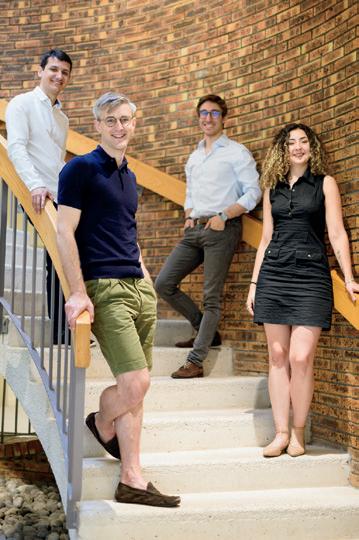

PhDstudentsbenefitfromclosecollaborationwithworld-classfaculty andstrategicallianceswithTheWhartonSchoolandSorbonne Université,gainingexposuretocutting-edgeresearchandinnovative teaching.Graduatesgoontolaunchsuccessfulacademiccareersat topbusinessschoolsworldwide,producingimpactfulresearchthat shapesthefutureofbusinessandsociety.
AttheINSEADPhD,wenurturethebrightestandmostcreativeminds fromdiversebackgrounds,equippingthemwiththetools,mentorship, andglobalperspectiveneededtobecomeleadingresearchersin management.


Areyoureadytolaunchaprestigiousandglobalacademiccareer? Submityourapplicationnowforentryinmid-August2026.Weinvite final-yearundergraduatesandpostgraduatestudentsfinishingtheir studies,fromanybackgroundandsubject,toapply.




● Russian-born billionaire Alex Gerko donated £3000 to the new women’s society
● Daily Mail columnist and Michael Gove’s ex-wife Sarah Vine donated £50
● Free Speech Union, who supported Cofnas, also o ered nancial support to the group
Calum Murray and Georgie Middlemiss
Deputy Editor and Senior News Edi-
tor e Cambridge University Society for Women (CUSW), the rst student group at the University of Cambridge which intends to limit its membership to those assigned “female at birth”, has received £13,810 in donations according to its GoFundMe page.
is comes almost three weeks after the society was founded by three students, with its initial announcement attracting considerable national media attention, as well as words of support from a number of public gures.
The society has previously been accused by the Cambridge University Labour Club of promoting “transphobic rhetoric under the guise of free speech”. In an interview, e Telegraph claimed that the society’s three founders – Pres-
ident Maeve Halligan, Treasurer ea Sewell, and Secretary Serena Worley –had been “branded ‘TERFs’ and shunned by peers”.
e list of donors includes a number of public gures, including Alex Gerko, Russian-born billionaire and Britain’s 20th richest man, who donated £3,000.
Lucinda Platt, a Professor of Social Policy and Sociology at LSE, donated £500 to the society. In 2023, Platt contributed to guidance issued by campaign group Sex Matters on collecting data on biologi-
Vine donated £50, telling Varsity, “if the society has been established by current students, one assumes they feel there is some kind of need for it. I am always supportive of women’s organisations.”
Alongside receiving large donations from a number of notable individuals who lack ties to the university, the society’s supporters appear to be dominated not by current students, but by university alumni.
has received support from the membership organisation the Free Speech Union (FSU). e organisation supported “race-realist” Cambridge professor Nathan Cofnas against criticisms over his research, which claimed that in a meritocracy the number of black professors at Harvard would fall to almost zero.
very open about the FSU’s involvement and sponsorship”, while Young declined to comment.
Halligan, speaking on behalf of the society, claimed that the FSU was a “nonpartisan organisation”. “We are proud to be receiving a grant from an organisation that clearly and e ectively champions freedom of speech in our society,” she added.


She told “as a Cambridge alumna with a lifelong commitment to women’s rights, I’m pleased to support an organisation that has women’s concerns at its heart.”
Daily Mail columnist, and Michael Gove’s ex-wife, Sarah
ere has been no evidence of the group having a strong support base among current students.
In an Instagram post by the society last Sunday (01/11), they claimed to have received 20 membership applications from students, and 60 applications from alumni to join the group of ‘a liated alumnae’, as membership is restricted to current students.
is stands in contrast to a statement from Gerko to Varsity, commenting on his donation, “I believe in sex-based rights, a view shared by the majority of Cambridge students and the vast majority of the UK population. Good luck to CUSW, which will provide a forum for those views.” Gerko did not cite any sources for this statistic he provided to Varsity Alongside the GoFundMe, the society
Its Founder and General Secretary Toby Young informed Varsity that it was in receipt of the organisation’s Ian Mactaggart Programme, which provides student societies with up to £1,500 per term. e programme claims to “foster a culture of open debate, independent thinking and free expression among young people in the UK, especially students.”
In 2021, a urry of students resigned from university free speech campaigns linked with the FSU. Students at Bristol’s Free Speech Society (BFSS) wrote: “We were led to believe that [the group] was independent from external organisations, particularly the one that most of us are concerned about, the FSU.”
Speaking in a personal capacity, president of the BFSS Harry Walker had said: “Organisations like the FSU are just perpetuating a culture war.” At the time, an FSU Director said, “I have always been
Halligan said the donations would go towards public events, publicity, and campaign materials for charities, and “a big part of why some people have donated” was to provide funds to defend against any potential legal action.
She continued: “ e Gofundme page was a way to make sure that, right at the start, donations were public and visible.
“People expressed verbally that they were really happy about the society’s launch, with some referencing how women have had to defend their rights over and over again throughout history.
“ e CUSW is not politically aligned and we have supporters from across the political spectrum, including many who are avowedly left of centre. We are proud to have received both a small number of larger sums and many smaller donations.”


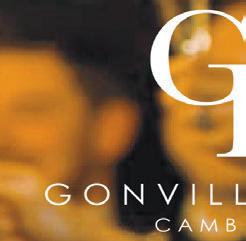


BlackTieEvent
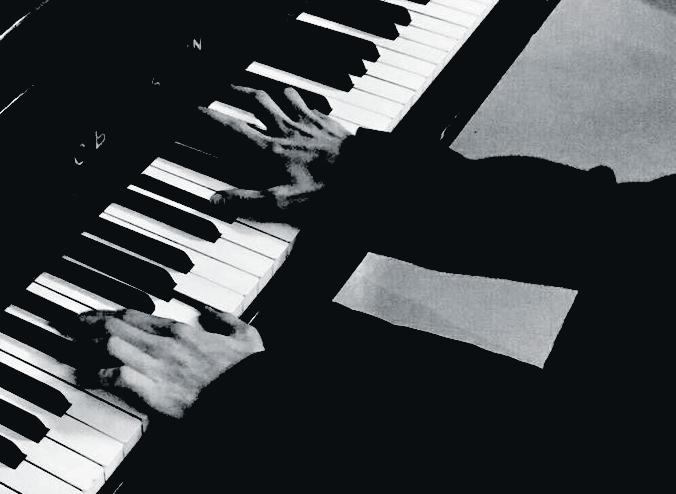

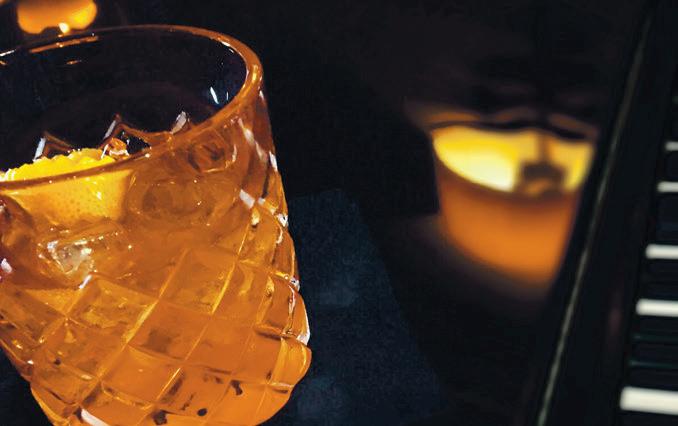

JoinusforaglitteringBlackTieeveningaswebidfarewelltotheyearandwelcome2026intrueGonvillestyle. BeginthenightwithacomplimentaryglassofChampagnebeforetakingyourseatinGonvilleKitchenforafive-course feast,thoughtfullycraftedwithseasonalflairandthefinestlocalingredients.


Georgie Middlemiss Senior News Editor
e Home O ce has denied a PhD student’s visa application to attend their graduation ceremony at Cambridge University, Varsity can reveal.
Despite intercession by both Cambridge MP Daniel Zeichner and Jesus College, the denial was con rmed in late October.
Dr. Reem Abbas, who studied both an MPhil and PhD in Modern and Contemporary Literature at the University of Cambridge, described the decision,
which left her unable to o cially graduate in-person, as “devastating”.
She told Varsity: “It was all the more devastating to discover that this country – the one in which I lived for ve years to read for my MPhil. and PhD at the University of Cambridge – would only ever see me as an alien. A highrisk. A potential asylee.”
Abbas was forced to leave Cambridge before nishing her PhD, in September 2024, faced with “pressing caring responsibilities back home,” and submitted her nal thesis in November from her home in Saudi Arabia.
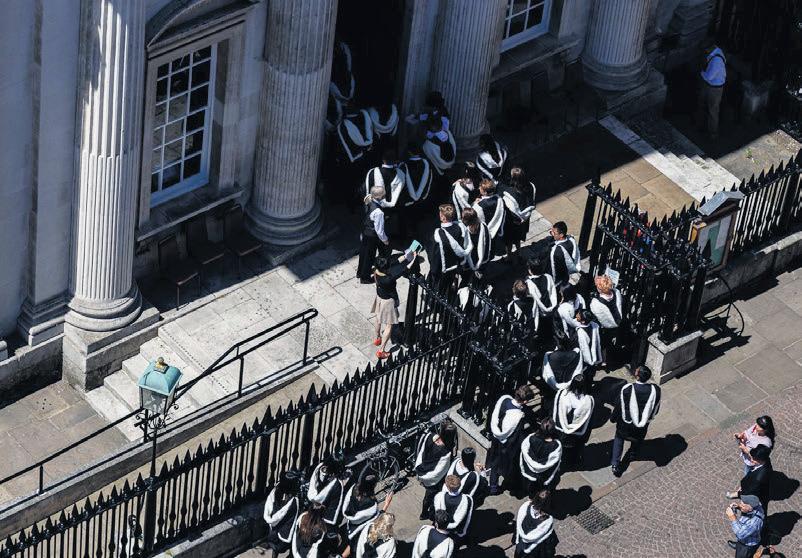
After sending her application for a short stay tourist visa to attend her graduation ceremony in early September of this year, Abbas received the decision by the Home O ce to reject the application on the 26th September.
A spokesperson for Jesus College told Varsity: “Jesus College supported Dr Reem Abbas in her application and appeal; we share Reem’s disappointment that she could not attend her graduation in person.”
Abbas has now lost the opportunity to graduate in-person, and has o cially had her degree conferred in absence. As per University policy, once a degree has been con rmed in absence it cannot be conferred in person.
While the Home O ce provided multiple reasons for its decision, Abbas claims the “real reason why it was rejected” was her nationality.
She is from Yemen, but was born and raised in Saudi Arabia and has no immediate family remaining in Yemen or ties to the country.
Abbas alleges the Home O ce denied her application on the basis of being from Yemen, out of concern she may have attempted to remain in the UK following the graduation and claim asylum. She emphasised: “For all intents and purposes, Saudi is my home. It is where my nuclear family has lived for three generations.”
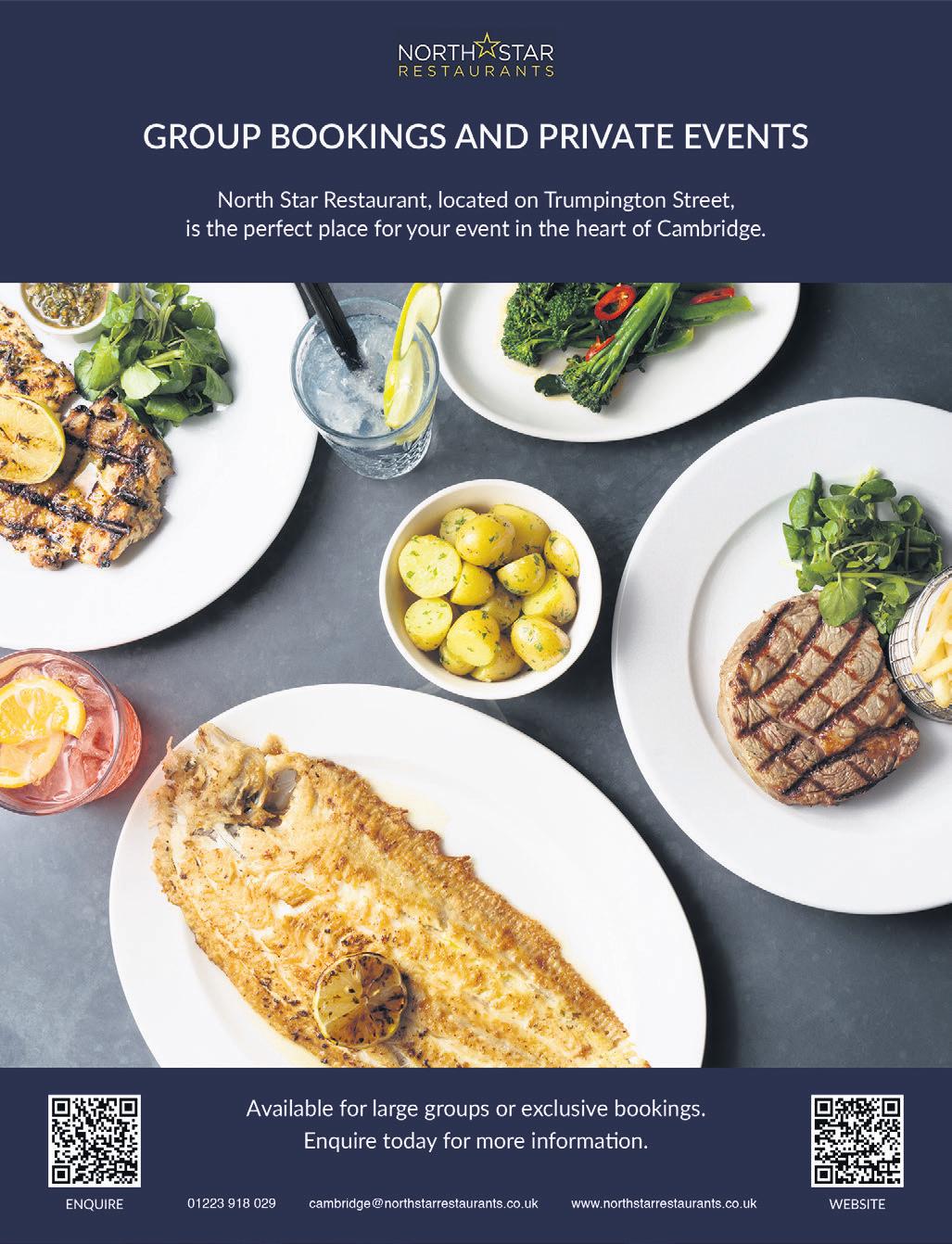
Intervention from both Cambridge MP Daniel Zeichner and Jesus College in support of her application was ultimately unsuccessful. Zeichner noted on the rejection: “I recognise that visa decisions can involve complex considerations, but it is always sad to hear of the disappointment of those a ected.”
Left furious at the decision, she emphasised the various evidential documents she provided that all, in her words, “prove that I have strong ties, obligations, and aspirations to return to and remain in Saudi”.
e rejection letter referenced that she has no family remaining in her home country, stating “I am not satised that your ties in your country of residence are such that they would encourage you to leave should you be granted entry into the UK.”
She mourned her inability to formally end her time at Cambridge, both to celebrate and say goodbye but also to pay heed to the city she had spent ve years in.
She re ected: “I will not be able to see the people who made my life in Cambridge as beautiful and memorable as it was. I will not be able to thank my supervisors in person. I will not be able to walk along the river Cam, to feed its swans or watch its ducks waddle into water as the sun fades into early evening. I will not have the opportunity to visit the libraries in which I spent the
better part of ve years.”
is is not the rst time Abbas has experienced visa application rejections from the Home O ce, another suggestion that her nationality was behind the recurring rejections.
In 2017, the O ce rejected her application both for an ERASMUS exchange programme and an International Summer School in Scotland. Both times, as in this year, they gave the rationale behind this decision the concern that she may attempt to remain in the UK after the trip.
Cambridge MP, Daniel Zeichner, told Varsity: “I was very sorry to learn that Dr Reem Abbas was unable to attend her graduation ceremony at the University of Cambridge. Having completed her PhD here, I understand her deep disappointment in being unable to celebrate this achievement with her peers and supervisors.
“While I am unable to comment on the speci c details of the case, I can conrm that I made representations to the Home O ce on Dr Abbas’s behalf; however, the original outcome was upheld.
“I recognise that visa decisions can involve complex considerations, but it is always sad to hear of the disappointment of those a ected,” he continued. e Home O ce was contacted for comment.














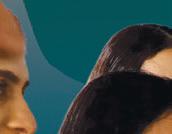

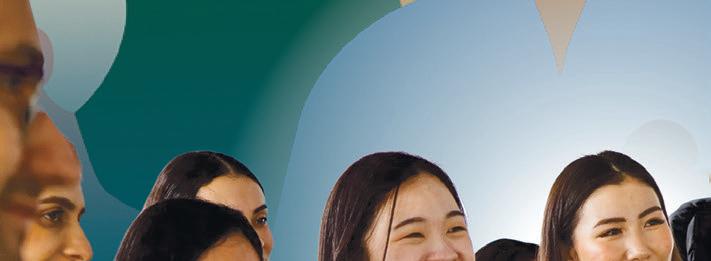



































































































Faron Smith Senior News Editor
Selwyn College o cials have expressed concern about a motion by students to allow cultural wear to be worn at formals, Varsity understands.
At a JCR meeting on the 26th October, a member of the committee proposed that the college should further clarify whether cultural wear is allowed to be worn at formals, with the current guidelines being unclear.
According to the college’s website, it is deemed to be “important that standards of behaviour and dress at such an event must remain suitable to the occasion,” with the “Butler or supervisor in charge of the event […] empowered to rule on the suitability of attire before sanctioning entry”.
e dress code makes no mention of cultural dress, with men required to wear a “jacket and tie,” with an “equivalent level of formality” for women. As at other colleges, gowns must be worn at all times.
e following week’s meeting minutes recorded that the college had expressed “reservations” about the change, following a Stewards Committee meeting that had taken place on the 4th.
According to the minutes, fellows and sta expressed concern that some individuals would use the change as a “loophole” to wear inappropriate clothing.
ere was further concern that Hall Sta would be made responsible for determining what should be classed as
“appropriate cultural wear”.
While it is unclear exactly where the concerns come from, the Steward’s Committee, which governs the college’s catering, consists of 8 members of sta , alongside representatives from the JCR and MCR.
It is understood that the process of making the change has been restarted, and the JCR is optimistic that the motion will go through.
Students at the college have been broadly supportive of the proposed change, with one describing the controversy as “another case of archaic Cambridge traditions being put over real life. It should be basically a non-issue and yet they seem to want to ght tooth and nail over some fabric”.
Another student said: “I think it’s ridiculous that some in the college don’t want to allow cultural wear at formals – people should be allowed to to wear something they feel comfortable in for formals, and we should want to celebrate our diversity in college rather than hide it.”
Earlier this year, a Selwyn formal dinner was interrupted for another reason: climate activists protested the lack of plant-based menus at the College. Jason Scott Warren, a professor at the University, said at the time that “we need to get out of the meat-and-two-veg rut and begin to discover more sustainable options”.
Dress code for formal halls already di ers broadly from college to college. Downing makes allowances for cultural
wear, stating that “a collarless shirt may be worn without a tie as part of cultural dress”. Meanwhile, Caius is famous for its loose dress code, only stipulating that students must wear gowns over their clothes.
In 2015, St Catharine's changed its 800-year dress code at formal dinners to allow women to wear suits.
A spokesperson for the College conrmed that no decision has yet been made yet on whether to allow cultural at formals.

Alexander Brian Deputy News Editor
e Head Porter of Magdalene College has issued a warning to students after a piece of bread was thrown onto the roof of Basing House accommodation.
“Unfortunately, a loaf of bread has now been thrown out of a window,” wrote the porter in an email sent to all residents of the accommodation at the beginning of this week. “ is behaviour is completely unacceptable.”
in a di erent accommodation block, reacted: “From the outside, it does seem a bit excessive to send an email talking about safety hazards over a loaf of bread, plus, in the picture they provide, it looks more like half a bun anyways.”
Basing House is located above Prezzo on the opposite side of the river to most of Magdalene College. For whatever reason, the accommodation has become a locus for roof-based indiscipline.






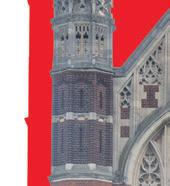


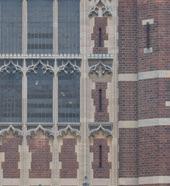
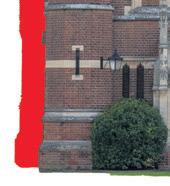
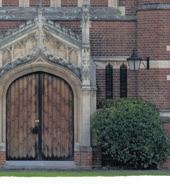




e accompanying image in the email shows not a loaf, but half a bun perched on the edge of a at part of the roof next to the wall.
“Throwing food or any objects from windows poses serious risks,” the email continued. According to the porter, these include “hygiene issues” as well as “damages and costs”.
e Head Porter explained that “food waste attracts pests and creates unsanitary conditions,” before adding that throwing objects “can damage property and lead to expensive repairs”.
On VE Day (08/05), some of the previous batch of residents climbed onto the roof of Basing House and left the message “RIP Basing Bomber,” in reference to an inside joke about a mystery student’s unfortunate toilet habits.
Reacting to this latest incident on Magdfess, an anonymous confessions page for College members, one post announced: “move over Basing Bomber, welcome Basing Breader”.
Magdalene is by no means immune from mysterious misbehaviour.
In 2024, a sacred painting depicting the Virgin Mary and Jesus was stolen from Magdalene College Chapel.


e email also suggested that the ying bread could pose a “safety hazard” as “falling items can injure someone below”.
is is not the rst time the Head Porter has contacted students regarding the inappropriate propulsion of objects. His email references a “previous message regarding items being thrown from gyp rooms”.
One Magdalene student, who lives
Meanwhile, a Varsity investigation in 2024 found that Magdalene students were among the most likely in Cambridge to be ned for not meeting College rules. ese included not showing up to tutor meetings at the start of term and failing to ll out a form con rming they have kept term.
In 2022, the Magdalene JCR President was ousted in a no-con dence vote due to multiple allegations of “misconduct”.
James Watson dies, 97 James Dewey Watson, who alongside Francis Crick uncovered the structure of DNA in 1953, has died aged 97 after a brief illness. Varsity was the first newspaper to report the discovery, made at Cambridge’s Cavendish Laboratory. The Chicago-born scientist died on 6th November after a brief illness. He will be remembered for his major contribution to biology, recipient of a Nobel prize in 1962, but also several controversies in his later life. These include views about genetic differences in intelligence between races, and dismissing the vital role Rosalind Franklin played in his and Crick’s discovery.
Cantab resigns as BBC chief
Selwyn alum Tim Davie resigned as Director General of the BBC on Sunday (8/11). Deborah Turness also stepped down from her role as Head of News. eir resignations followed the leaking of an internal BBC memo by e Telegraph. is document claimed that BBC Panorama edited together sections of Trump’s speech on January 6th 2021 to make it look like the US President explicitly incited the Capitol riots that afternoon. Davie said of his decision:
“Overall the BBC is delivering well, but there have been some mistakes made and as director general I have to take ultimate responsibility.”
Alumni dominate book award
Cambridge alumni are responsible for four of the 15 titles shortlisted for the 2025 Waterstones Book of the Year. ese include Natasha Brown’s satirical novel Universality; R.F. Kuang’s Katabasis, a fantasy about the hellishness of academia; Craftland by James Fox, which explores Britain’s vanishing traditional skills; and David Attenborough’s latest book Ocean, with Colin But eld. Waterstones' head of books said: “ ere is something for every reading need: from motivational nourishment to pure escapism, via fantastical quests and jump-scares.” e winner will be announced on 27 November.
Rare orchid rescued
e Cambridge University Botanic Gardens have rescued a rare orchid from the brink of extinction. Since 2008, they have been working with Plantlife and Kew Gardens to reintroduce Fen Orchids (Liparis loeselii) across the UK. In 2010, the species was only found in three sites in East Anglia and one in Wales. e main reason for its decline was habitat loss resulting from the drainage or abandonment of fens. 15 years later, Fen Orchards have been recorded at seven sites in England and three across Wales. is marks the rst time the species has successfully been cultivated in Great Britain.
SIMPLY PRESENT YOUR
E-bike phone thieves strike across Cambridge
Police are investigating nine incidents of mobile phone theft that occurred over this last week between Saturday (08/11) and Monday (10/11). e areas targeted included Newmarket Road, Trumpington Road, Jesus Lane, Parker’s Piece, Midsummer Common, Emmanuel Street, Christ’s Pieces, and near Cambridge North Station. Inspector Shawn Emms commented advising residents to “where possible, also keep your phone out of sight when not in use and be cautious when using your phone in public.” In an email to Colleges about potential phone snatches, the local police explained that “these bikes travel very fast and are silent so victim’s can be completely unaware of their presence until their phone has been snatched out of their hand”.
Remembrance memorials
Both the Mayor and Deputy Mayor of Cambridge will attend events marking Remembrance and Armistice Day this Sunday (15/11). In the morning, the Mayor will meet veterans before a parade to the Hills Road war memorial, followed by a commemorative service with wreath-laying. An annual service at Great St Mary’s Church will be broadcast from 10:30 a.m. on Cambridge Radio. Services will pause at 11 a.m. for the national two-minute silence. Mayor Pounds commented, “It is 80 years since VE day when we remembered the end of con ict in Europe after the Second World War and VJ day which marked the end of WW2 con ict in the Far East. is year, we also remembered the people of Nagasaki and Hiroshima whose cities were devastated by atomic bombs”.
Mill Road closed for at least next two weeks
Illustration by Richard Briggs

Mill Road will be closed for a minimum of the next two weeks as construction is underway to x a collapsed sewer. e works begun last Tuesday (11/11) and are estimated to continue until at least 28th November. Access to Mill Road will only be allowed for emergency vehicles. An Anglian Water spokesperson commented: “We’re sorry for any tra c disruption”, and “in order to keep road users, pedestrians and our team safe while we work, we have needed to close the road with emergency access only”.
Meanwhile,
Faron Smith Senior News Editor
ing as one of the “most signi cant factors” in its income increasing from £47.1 million in 2023 to £53.5 million in 2024.
St John’s College has earned more than £112,000 by renting out its grounds for movie sets, over ten times the amount cashed in by other colleges.
rough Freedom of Information requests, Varsity has analysed the amount earned by 19 colleges from commercial lming projects, although several of these reported having had no projects lmed since the start of last year.
John’s earned a total of £112,750 since the start of 2024, with three projects being shot on the college’s grounds in that time.
While the College did not reveal what the projects were, there have been several high-pro le projects that have taken place in the college setting in the last year.
Among these is Prime Target, an Apple TV+ series, which premiered in January 2025 and follows the adventures of a ctional Cambridge Maths student who becomes entangled in an international espionage plot.
According to the College’s Instagram account, lming for the series took place in August 2023, outside the period investigated, but shooting returned for additional scenes in 2024. e show’s trailer opens with an aerial shot of the city, before showing clips of star Leo Woodall walking through St John’s College’s First Court, and cycling through its gardens.
In its 2023-24 accounts, the College made note of the high amount taken in by commercial lming, describing lm-
While the College’s post about its role in Prime Target did mention that some students “were lucky enough to get jobs on set,” a John’s student said: "I’ve never been stopped by lming; the College seems to do it primarily out of term time, which means that I’m neither interrupted nor have the opportunity to have a cameo in some random TV show.”
e student continued: “If it is raising money for the college, I see no issue with it. Particularly since the dean seems very careful to ensure there are no issues with students.
"Universities and Colleges are in the depths of a nancial crisis. St John’s, being one of the most beautiful colleges, should get more money and support when there are scant options for further funding.”
£112,750
How much John's earned from three commercial shoots since the start of 2024
e College’s earnings stand in sharp contrast to those declared by other colleges in the same period, few of which breached ve gures.
e second College declaring the second-highest income was Queens’, who declared an income of £10,000 from 8

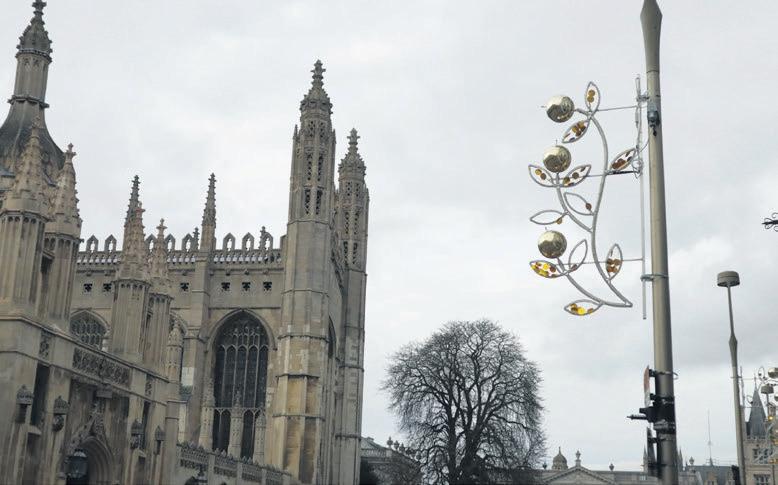
di erent commercial projects.
Queens’ featured signi cantly in the BBC drama Ludwig, starring Peterhouse alumnus David Mitchell. Alongside Queens’, lming took place once again at John’s, as well as at the University Library.
A second series has already been commissioned of the show, with lming taking place on Trinity Lane and All Saints’ Passage.
While Queens’ made the secondhighest formal declaration of income, it is likely that Jesus received more from commercial lming projects.
In response to the request for information, the College stated that there had been “two occasions since January 2024 when the College has been used as a location for a major TV/Film production,” without specifying a speci c fee received.
However, the College’s lming policy states that fees for large-scale lming projects start at a minimum of £6,500 per day, meaning that it will have earned at least £13,000 from the two projects to have taken place.
Among the colleges that declined to reveal their income from lming was Selwyn, although the College did conrm that 6 projects had taken place on its grounds. Among these is After the Hunt, which premiered in October and stars Julia Roberts as professor at Yale University.
In Selwyn’s Annual Report, bursar Jennifer Phillips mentioned the “highpro le lming” that took place in the College during the summer of 2024,
noting that “after weeks of intensive preparation, the shoot itself lasted only a few hours”.
e majority of the other colleges to respond to the request reported not having received any income from commercial lming, with the exceptions of Trinity Hall, which earned £8,000, and Clare College, which declared £450.
£6500
How much Queens' charge as a minimum fee for large-scale projects
Despite not receiving any income from lming, Sidney Sussex revealed that permission had been granted for 11 events to lm in the college, more than any other college.
Filming at the University of Cambridge is nothing new, with both the University and its colleges having been repeatedly featured in lm and TV for decades. Perhaps most famously, e eory of Everything, for which star Eddie Redmayne won an Academy Award, was shot largely at St John’s, as it traced the life of theoretical physicist Stephen Hawking.
Meanwhile, in the 1980s, Maurice was shot in King’s College, based on the E.M. Forster book of the same name. e lm won three awards at the Venice Film Festival, and was nominated for an Oscar.
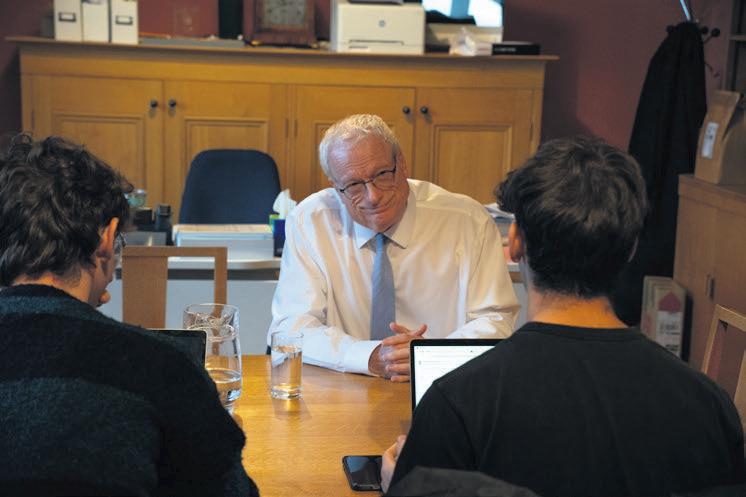

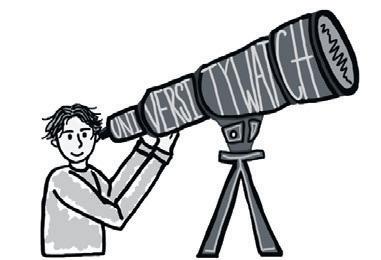
Mandelson resigns as honorary Oxford fellow
Lord Peter Mandelson has resigned from his role as honorary fellow at St. Catherine’s College at the University of Oxford, where he studied as an undergraduate, following revelations in September that Mandelson had failed to disclose the extent of his close relationship with convicted sex-o ender Je rey Epstein. “Lord Mandelson informed St Catherine’s College that he has decided to step back from public life. e college has accepted his resignation as an honorary fellow", St. Catherine’s o cial statement read. is follows Mandelson, who ran for Chancellor of Oxford University in 2024, being red from his role as UK Ambassador to the US in September.
Nottingham slashes language and music courses
e University of Nottingham has announced the suspension of all modern language and music courses for new applicants to the University, among other slashed courses, in a bid to cut costs. Current students on the courses will continue to be supported, emphasised a university spokesperson. Charlie Blair, a German and Russian student who started a petition against the change, said, “Everybody is so passionate about their course and then to just be cut o like that, saying you’re not important, we don’t value you, I think it’s really wrong.” 16 courses will be suspended in total, also including nursing and theology. e University and College Union (UCU) branch of Nottingham University opposed the courses cut.
Sta at both Lancaster University and She eld Hallam University have gone on strike over job losses, among other concerns. She eld Hallam members of the University and College Union (UCU) claimed around 1,000 sta had lost jobs over the past two years, and Lancaster University has signposted their aim to cut 400 full-time jobs to save costs. A spokesman for Lancaster University UCU told the BBC they believe that “around one in four sta are up for the chop”. A spokesperson for She eld Hallam said the university would “continue to seek to avoid compulsory redundancies where possible”.
Of Robinson’s small but esteemed list of famous alumni, Robert Webb is arguably top bill – and certainly less controversial than its red brick facade. At the beginning of my rst year, it seemed everyone had read his 2016 memoir How Not to be a Boy, hoping to glean which rooms he’d stayed in: H1, 4 Adams, and a house on Mill Lane, for those curious. ough Webb fondly recalls his time at Cambridge, it was when reading old diary entries to write his memoir that he realised, “I spent a really quite large fraction of my life really f*cking miserable”.
Webb puts a lot of this down to the neurosis of being in your early 20s: “ e privilege of being young,” he tells me, “is that you’ve got absolutely no sense of perspective. A lot of things are happening for the rst time, and there has never been anything so wonderful as falling in love, and there has never been anything so heartbreaking as being dumped”. ese extremes were an integral part of his student experience, and he re ects upon them fondly, concluding that: “as far as three years of one’s life go, it was pretty hard to beat”.
❝Getting there was just everything. So I remain amazingly grateful that it all worked out
When he matriculated in 1992, Webb was single-minded and “hell-bent on becoming a Footlight”. But his path was far from straightforward; after his mother’s death during sixth form, he was forced to take a year out to re-sit his A-levels, deferring his Cambridge o er. ough he’s careful to deny there being “tears behind the mask,” he con des that: “I think what losing mum did – because one immediately starts looking for silver linings – is it kind of emboldened me […] I think I slightly lost my mind, and that’s kind of necessary when you’re determined to do something so unbelievably unlikely”.
“Unlikely” for Webb wasn’t just a successful career in comedy, but being admitted into Cambridge in the rst place. We speak a little about his experience applying as a rst-generation university student, a process that felt “impossible”. “I mean, it was everything. Getting there was just everything. So I remain amazingly grateful that it all worked out”. Although his journey to Cambridge was complicated, the friendships and opportunities his time at Robinson gave him were unparalleled; from sketch shows to successful sitcoms, his work (eventually) paid o .




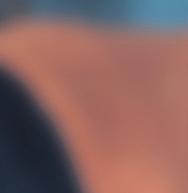






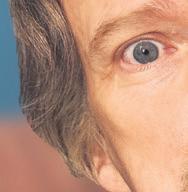

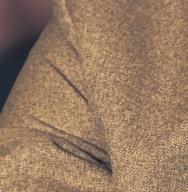


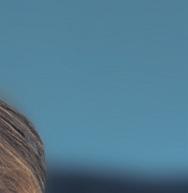



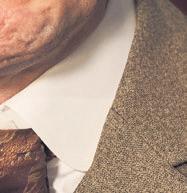





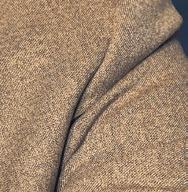


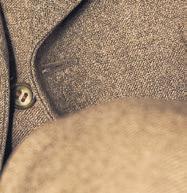

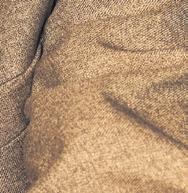


“ is series is the most heavily Mitchell and Webb-written show since the rst series of the BBC show in 2006”. Back then, he says: “We took it for granted […] whereas now we’ve got a bit of perspective. I go over to my best friend’s house and try to make him laugh for three hours and that’s a hell of a way to make a living”.
❝
Like most good things on TV, you ’ve got Jesse Armstrong to thank




Yet, despite his experience writing sketches at school, Webb was rejected from every Footlights show he auditioned for in his








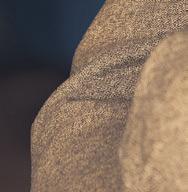

rst year at Cambridge. He laughs as he tells me that “I was absolutely outraged when I wasn’t cast. I was so full of myself and, quite frankly, wasn’t lacking in ego or self-belief”. ough he’s forgiven the committee for not casting him in the panto – “you needed to be able to sing” – Webb admits that he’s “still bitter” for not getting a part in the Spring Revue… though some would argue that’s for the better.
Sometimes it seems there’s unjust animosity towards student comics, and I ask Webb if the same was the case when he was a Footlight. As it turns out, quite the opposite: “ ere was nothing really scathing until Edinburgh, when e Scotsman got a hold of us – traditionally they just really f*cking hated us […] I remember
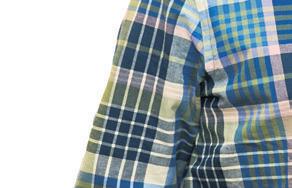

‘I spent a really quite large fraction of my life really f*cking miserableʼ

review opened with: ‘they’ve got horrible middle class names like Matt and Claire’ – Matt’s from the f*cking Bible!”. Yet he admits that, even in Mitchell and Webb’s student heyday, there was a sense that the troupe had gone downhill. He assures me that “there’s never been a Footlight show that wasn’t a terrible and pathetic shadow of what Footlights used to be […] and no doubt Peep Show was used as a stick to beat you round the face and neck. at’s how Footlights works […] but you go and see if there’s someone like David Mitchell there – and would you believe it, David Mitchell himself was there!”


be receptive to the idea”. So, Webb tells me: “he did, and we were. And like most good things on TV, you’ve got Jesse Armstrong to thank”.
❝ He’s ‘still bitter’ for not getting a part in the Spring Revue
Inevitably, our conversation veers back to Peep Show, though Webb assures me that: “I like Peep Show, it’s ne!”. Regarding its popularity on platforms like TikTok, I ask why he thinks the show is still resonating with young people. “I get to be very modest about Peep Show because I didn’t write it,” he says. “I think it taps into everybody’s insecurities: that they’re not part of the mainstream, that we’re always going to be in our weird little puddle, isolated from the cosmic party that is going on elsewhere […] e question of the show is: ‘Is it going to be OK?’ and I think that’s a very personal question for young people. As it is, there’s just enough hope that maybe Jez will make it as a musician and Mark will get together with Dobby, and maybe it’s going to be alright”. When it comes to a reboot, Webb is adamant that it just wouldn’t work: “If you come back and they’re 53 and they’re still living with someone they don’t want to live with and they’re still not ful lled romantically or professionally, well, the jury’s back in, and you f*cked it. e show would just be so sad”.







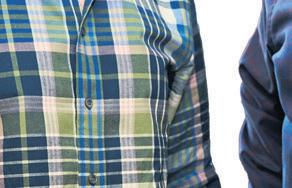

Our conversation comes a month after the release of his latest sketch Mitchell and Webb are Not Help, which marks the duo’s return to TV after a 15-year break. I’m curious to hear why they’ve chosen to stage their comeback now, and Webb con des that: “as it turns out, we spent 15 years politely waiting to be asked”. e o er came out of the blue, following a dinner between Jesse Armstrong and Channel 4’s Chief Content Creator, Ian Katz. When Katz let slip that he’d love to see the pair reunite, Armstrong replied: “Well, I’m sure if you asked Rob and David, they’d







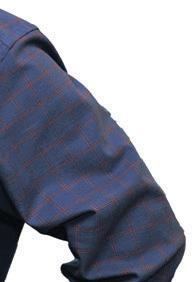
e show doesn’t shy away from the fact its stars are ageing and jokes about aging – including an entire sketch about Googling ‘Robert Webb dead’ – abound. I ask Webb whether they feel this has o ered them a new perspective, and he assures that it’s “a lot less pressure. I think it would be strange if we didn’t acknowledge that we’re entering the, uh, autumn radiance of our years […] we’ve got less to prove.” Being able to write and perform his own material has been a real treat for Webb, and though he’s more than happy to act in other people’s sitcoms, he’s appreciated the return to form.
When we get onto his collaboration with David Mitchell, Webb appears delighted to be working side-by-side with his old friend again. He tells me that:
Mitchell and Webb are Not Helping features the return of some familiar faces, the highlight being fellow Footlight Olivia Colman as a detective. Since the end of Peep Show, she’s gone on to win an Oscar, an Emmy, and several Golden Globes. “It’s strange,” Webb confesses, “because it’s that distorting thing fame does […] on the one hand, you’re talking to Colly, and then suddenly you remember this is the person you’ve seen on various red carpets in various unbelievably glamorous locations and you go, f*ck, it’s Olivia Colman! But [working with her] was lovely, it was just like old times”. e show has also o ered Webb the opportunity to work with a new cast, which has been “absolutely lovely”. ough the ensemble is a little younger than the show’s stars, Webb assures me that “we don’t spend the whole time going on about VHS tapes and days before the internet”. His advice to young comedians? “If you’ve got something to o er, and you’ve got evidence of that, then you just need to keep going. If you have no evidence, then maybe they’re right and you shouldn’t be doing it […] but if you think you’re funny, de nitely keep going” – he puts a heavy emphasis on “if”. While things were left uncertain for Mark and Jez, when I ask what’s next for Webb, he seems to have things worked out. “I’m just living my life. I’ll go for a run, I’ll do some reading. I go to the shops and cook tea and we’ll all watch TV together. You know, it’s not a bad life”.
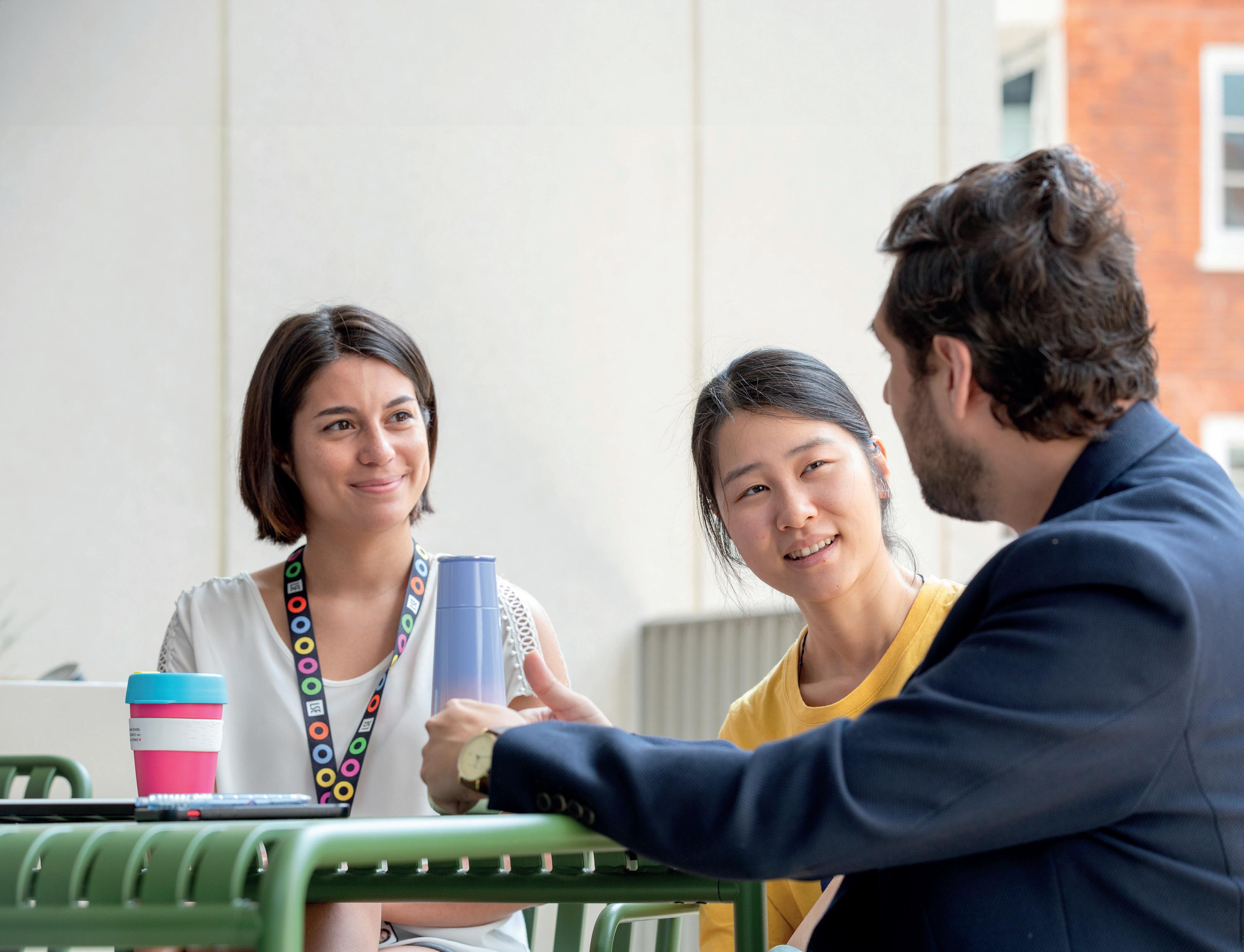

Dhruv Shenai talks to Cambridge professor Howard Stone about
Walking along the Morfa beach in Wales, the sun sinking behind the clouds, you turn to face the peaceful city of Port Talbot. Towering in the foreground is the Port Talbot Steelworks. For the past 70 years, this has been a centre for UK Steel production. Now, its future is on the line, with the last blast furnace falling silent in 2024.
But this apparent loss gives a unique opportunity to Cambridge's materials science department. Howard Stone is the Tata Steel Professor of Metallurgy – a role endowed by Tata Steel, the Indian multinational company which owns the Port Talbot plant. He is investigating the science behind high-recycled-content steel, which could nally enable a cleaner, more competitive steel industry in Port Talbot and the rest of the UK.
Tata investing in UK steel?”
“You don’t spend £750 million on a whim.” is £750 million, added to a £500 million grant from the Government, is the total investment from Tata Steel on Port Talbot. “Scrap steel has become a global issue. e demand for arc furnaces will only increase. is oneand-a-quarter billion pound investment will secure Port Talbot’s future.”
Currently, the steel industry contributes 14% of the UK’s manufacturing greenhouse gas emissions and around
tonnes of scrap steel annually for other countries to recycle, incurring additional transport costs and emissions. It is time to try something new.
“It’s one of the most exciting times to be a metallurgist. A once in a generation opportunity to rede ne the way that steel is made in this country while still meeting the demands of the country.”
ough the money and energy are in the right place, is the science?
e electric arc furnaces primarily take in recycled steel. However, the more 2.8% of energy-related CO2 emissions.
e Tata Steel initiative is aligned with a vision of reducing the emissions of the industry by up to 90% by 2050, with an estimated 50 million tonnes of direct emissions reductions in the next decade
It all comes down to Tata Steel’s initiative to upgrade their plant to electric arc furnaces
It all comes down to Tata Steel’s initiative to upgrade their plant to electric arc furnaces. ese furnaces specialise in recycled steel and could make the UK produce sustainable steel. However, the science behind high-performance recycled-steel remains unknown, which is where Howard comes in.
I was intrigued by the signi cant interest a foreign company was showing in British steel, and so naturally the rst question I posed to Stone was: “Why are
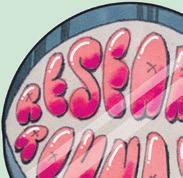
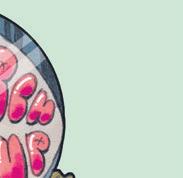

a rundown on some of the latest scienti c research
e secrets of the Pillars of Creation
e Pillars of Creation, lying deep in the Eagle Nebula, are a set of three gigantic columns of cosmic dust and gas, like a golden hand reaching out into the cosmic abyss. But beyond theirstrikingappearance,theseclouds are of intense interest to astronomers.
In a study published in Nature, scientists have used data from the JWST to locate 264 candidate young stellar objects – far more than previous studies suggested. It indicates that star formation in the pillars over the past million years has been far more active than originally thought. With these new observations, researchers hope
e UK serves only 0.4% of the global steel market, so it simply cannot outproduce other countries. By nding a way to recycle scrap steel, we can make the steel we produce more environmentally friendly, and therefore more appealing. Currently, the UK exports approximately 8 million
you recycle steel, the more impurities like copper and tin accumulate, which catastrophically ruin the properties of the steel. “Car bodies, food packaging […] the tolerance for residual elements in these uses are very tight. But if we want to be e cient, we can’t just avoid the nasty materials, you have to use all
For Howard, that means being pragmatic. By de ning clear grades of steel quality, he hopes to match their properties to their ingredients
and processing route, and therefore provide the recipes for companies to produce the right quality steel with the highest amount of scrap. is relies on open-source data, aggregating the right information into something like a rule book. Unfortunately, steel metallurgy is incredibly complex and the science behind how combinations of dilute impurities affect the properties of steel is not well known. However, with the scrap consumption from the steel sector set to triple by 2050, this research is a necessary step for the UK.

to better understand how and why new stars form in the pillars, as well as the in uence of nearby massive stars on the star formation process.
Is antibody there? ymus regeneration in mice
e thymus is an organ located in the upper chest that governs our immune system by producing T-cells, our natural defenders against disease. However, it is one of the fastest-aging organs in the body, shrinking soon after puberty. is makes it a vital target for regenerative medicine, particularly after chemotherapy or stem cell transplants.
Last week, scientists published a groundbreaking strategy for thymus repair. By giving mice a speci c type of thymic cell soon after a stem cell transplant, they were able to restore immune function. It pins a previously unrecognised population of cells, marked by a protein called periostin (Postn+), as the key to this e ect.
e Postn+ cells were previously known to release a chemical signal called Ccl19, which seems to be critical to the mechanism of regeneration. e new work shows that these cells act as beacons, attracting T-cell precursors (e ectively baby T-cells) from the bone
marrow to the thymus. So, when the researchers reintroduced these Postn+ cells into mice with a damaged thymus, it was remarkable to observe that the cells successfully integrated with the organ and restarted T-cell production.
ey also noted that the mice had improved vaccine response after the treatment, which is a great sign for future therapies.
e research has opened up the poignant question: – what is Ccl19’s role in thymus repair? If researchers can nd the mechanism behind that, the discovery could lead to cell-based therapies aimed at rejuvenating the human immune system one of the most important challenges for regenerative medicine in the 21st century.
New germanium superconductor discovered
Scientists in Queensland, Australia, have developed a method to produce germanium superconducting lms.
e result is a stable, readily available material that can be used in quantum computing chips.
With a superconducting temperature of -270°C, meaning it only displays the correct properties under this temperature, the material is ruled out for
Clearly, the government agrees, as the EPSRC (Engi-
general commercial use (the lowest temperature possible is -273ºC, or 0K). However, it could be the perfect material for quantum computers which operate at this temperature.
With a superconducting temperature of -270⁰C
e group did it by ooding the germanium with another element, in this case gallium, to encourage the formation of the superconducting thin lm.
e group then sandwiched this material with germanium and silicon semiconducting layers to form a device, which o ers the advantage of utilising both superconducting and semiconducting e ects. is technique is known as ‘molecular-beam epitaxy’.
e major breakthrough here is the method, as it could be the key to making other materials like superconducting silicon or diamond, bringing
neering and Physical Sciences Research Council) decided to work with Tata and the University to fund research with Howard. With his new team, he hopes he can nd ways to be smarter about steel production.
In the short term, Port Talbot’s shutdown has disrupted the local community. Around 2800 workers were made redundant last year. ough Tata insists that 5000 jobs will be preserved with the new plant, it begs the question of what the steel industry will look like in the future.
For Howard, the future will be one of hope: “we have to make this work, because the alternative is we’re stuck with the current carbon intensive methods. Let’s make this a reality.”

researchers closer to practical, scalable quantum technologies.
What do you remember, Mickey?
Our memories are some of our closest held possessions, but how and where do we store them safely? For the rst time, scientists have found that by altering the activity of a single gene located in neurons, a group of mice’s ability to recall a memory was a ected. Since the alteration was performed epigenetically, where chemicals temporarily mute the expression of the gene, this e ect was reversible.
e group used a CRISPR-based epigenetic technique (a gene modi cation method) to alter the expression of a gene known as Arc, which regulates the activity of synapses. e researchers targeted this gene speci cally within engram cells. is strengthens the evidence that these cells control memory and learning processes in the brain. e Munichbased group turned the promoter up or down, e ectively changing the mice’s ability to recall memories.
e results clearly show that gene expression helps regulate our memories’ formation and maintenance, and it begs the question of what more we can nd out about engram cells.
The music is deafening, the crowds are sweaty, yet students invariably clock in for their weekly shift at Revs. It has been suggested that dancing in a group bene ts the brain’s social function. Dance literally helps you to get on the same wavelength as your friends. is seems a genuine neuroscienti c phenomenon – brain wave oscillations can sync up between people, aiding communication. e phenomenon where rhythmic stimuli (like sounds) can align people’s physiological processes is called ‘entrainment’. Bass may play a particularly important role in tuning your brain’s representation of the beat. erefore, the music associated with clubbing may help you to develop valuable social connections.
Engaging in this communal rhythmic behaviour may take us back to our hunter-gatherer roots. e ‘hive hypothesis’ claims that engaging in synchronised group movements and losing your sense of self is important for psychological ourishing. is raises the question: why do we not just dance like this outside of clubs? Maybe because it is not socially acceptable to bop around awkwardly in a circle, unless it’s dark, crowded, and everyone around you is doing it too. Booming music builds a sense of
excitement, perhaps because loud sounds activate parts of the brainstem (called the reticular formation) that keep us awake and alert. It has also been suggested that as we accumulate more positive experiences to do with clubbing, we associate these enjoyable feelings with the club environment, meaning we are further conditioned to enjoy and seek out loud music.




cohol further appears to decrease activity in brain regions associated with fear responses. e brain starts using more inhibitory (rather than excitatory) neurotransmitters, reducing anxiety –explaining why a night at Revs might feel like the perfect antidote to an es-
probably attest, reduced inhibition also results in a tendency to overshare.

seek
high starts during the getting ready ritual – out ts, makeup, and Spotify playlists are all cues that remind your brain of the coming experience. is predictive dopamine surge explains why the pres can feel better than the club itself – though paradoxically, they might not feel quite so good without the promise of what


e excitement might begin hours before you even reach the dance oor. Dopamine is often described as the brain’s ‘reward’ chemical, but counterintuitively, dopamine levels peak in anticipation of a reward rather than when something pleasurable actually happens. e




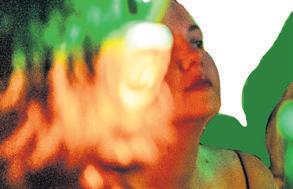

Although not integral to the clubbing experience, it is interesting to ask: why do we drink? Intoxication increases activity in ‘reward circuits’ (including the ventral striatum, where dopamine is released), which promotes pleasurable

feelings. Alan





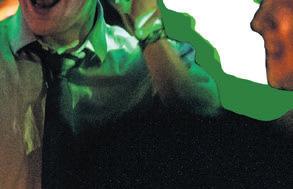

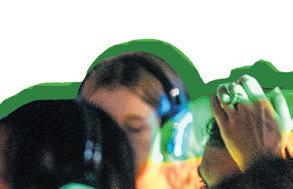

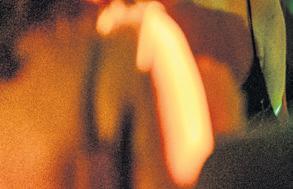













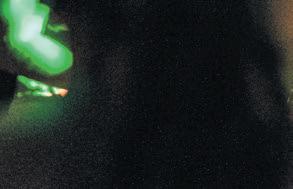








































































































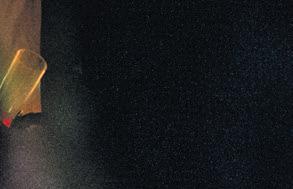





Of course, limiting your threat-detection abilities can be dangerous as well as liberating. e more con dent you feel, the more dangerous drunk VOIing becomes. And as anyone who has spent time in the Mash bathrooms can


When you nally make it back to your accommodation, the alcohol (and likely tiredness from the late night) may help you swiftly sink into slumber. One study found that alcohol increases slowwave sleep, which is the deepest stage of non-REM sleep, thought to be important for functions like memory consolidation and clearing waste from the brain. Higher doses of alcohol may interfere with REM sleep, however, robbing you of your dreams and a clear head
Alcohol may contribute to bonding on a societal level. Recent research reported that alcohol consumption is associated with complex social hierarchies in non-industrial societies. e authors suggest that it reinforces political power, provides a labour incentive, and strengthens group identity. It has even been suggested that the desire to make alcohol drove the shift from hunting and gathering to agriculture. Clearly, alcohol seems a potent motivator for group activity.



Not all aspects of clubbing may be good for you, but at least your enjoyment of it is biologically defensible. You could even see it as a way to connect with your ancestral instincts – perhaps a more creative way to justify that night out to your supervisor.






In having conversations with politico friends, it is always striking the paucity of understanding as to why someone would vote for Reform. While I wouldn’t because of the fundamental reprehensibility of their policy, and the vituperative nonsense they spew, the reasons people vote for Reform are dangerously understandable. When one leaves London and the Home Counties, it becomes clear that this country and our systems work only for the few. e opportunity for almost everyone else has fallen precipitously, as towns have begun to rot, plagued by economic collapse, brain drain, and a spiralling cost of living, leaving many bereft of any feeling of progress. ese are not Reform talking points; they are what people feel in their bones, a waking moment of fear about their futures. When you feel there’s no place left for you, no party that you can trust, you must choose di erently – not out of blind optimism, but in the conviction that something might yet change. is support is not some sudden or even confused thought, but a rational conclusion after years of feeling neglected and left behind. is bubble in which we study, and its profound disconnection from the rest of the country, is a dangerous luxury. Easy
❝ is bubble in which we study [...] is a dangerous luxury
as it would be to simply retreat into the happy homes of ideological security, the paramount need is for us to re-engage with that with which we profoundly disagree. is intellectual quarantine does a disservice to us and allows facile arguments to go unchallenged, preventing us from understanding the nature of its appeal.
e best argument against Reform is actually engaging, not the petty dismissal. It is the same dismissal which has led people to vote for Reform in the rst place, having been scorned and alienated. e intense eye-rolling, casual sophistication, and sti ed contempt for the creation of such a society is the very same distaste that, for many people, leads them to support Reform.













Indeed, it is precisely why we require a Reform society. What we require is not a queue of clamorous caricatures, but an articulation of policy and ideas by peers at this university. If you truly want to combat Reform, the solution, at least in this university, is clear: we re-


quire a Reform society, something to provide a basis to arguments which are made so bluntly and poorly across
If we are serious about countering Reform, we must embrace it and engage with it. is long-overdue debate requires a new society that can champion ideas many nd repugnant. So if you oppose Reform and all that it stands for, you must support a new



Iwas unsurprised to hear that the decision had been made to create the Cambridge University Society of Women (CUSW). Since coming out as a lesbian ve years ago, I have witnessed increasing anti-LGBT+ and particularly anti-trans sentiment being directed at my community. It brings me immense sadness that this hatred now has a home in our student community – that it can fester and be fed in a space that many use as a refuge.
CUSW has been set up as a single-sex space and claims to advocate for “adult human beings belonging to the female sex class”. e issue that most concerns the women who founded the society is the very existence of a tiny minority of the population: trans people.
e blog post used to launch the society makes for bleak reading. In it, the society’s founder states “I want women who think they’re men to join this society […] I don’t think they actually wish they were men. I think it’s actually because they wish they weren’t women”. is is a worrying endorsement of the very logics that underpin conversion therapy practices.
e section titled ‘Newnham, the Women’s College for Men’ was particularly jarring. In it, Newnham College is referred to as a “transition pipeline”. One of the society’s founders claims that “the majority of lesbians who arrive as freshers […] will be some avour of trans or non-binary within a year,” a process that she argues is accompanied by a “clear decline in mental wellbeing”. Aside from a strange and misguided attempt to pathologise trans people, these claims are so far removed from the reality of life for queer people at Newnham.
Newnham’s queer community is vibrant. I know this because I served as Newnham’s JCR LGBT+ o cer for a
❝ I have lived the consequences of this hatred
year after experiencing institutionalised homophobia and transphobia at school. Newnham has a thriving queer and trans community because generations of Newnham students have co-created an environment in which people can be curious about their identities, have the security to explore it, and can be supported by other students who share their experiences. For many people like me, university is our rst experience of an education or living environment that is safe. I pity anyone who is so full of hatred that they see this space and attempt to demonise it.
I have lived the consequences of this hatred. Earlier this year, I was sexually assaulted at an LGBT+ bop at another college. While the University reporting processes for sexual violence are retraumatising, convoluted, and ine ective, CUSW have decided to focus their energy on spotlighting the ‘issue’ of trans inclusion at Cambridge. I was not assaulted by one of the many trans women in attendance that night. I was not assaulted in the gender-neutral toilets. I was not assaulted by a man who

‘dressed up as a woman’ to get to me. 91% of people prosecuted for sexual o ences are cisgender men over the age of 18; they do not need the ‘cover’ of transness to perpetrate violence against women. I was sexually assaulted by a cisgender, male student wearing his university sports club tie and college scarf in a room full of people.
Anti-trans rhetoric is fuelling the antiqueer hostility which means that cisgender, heterosexual men (like the one who assaulted me) think it is acceptable to intrude on and perpetrate violence within queer spaces. e violence of my assault is not isolated. My trans and gender non-conforming friends and I have been subjected to repeated homophobic and transphobic language, physical violence, and intimidation in public while out in Cambridge. e framing of anti-trans hatred as in the interests of women and lesbians is false. As a survivor and an “adult human being belonging to the female sex class,” let me make this clear: CUSW’s rhetoric only exacerbates the danger I face in public.
e outside world knows nothing of the joy that is the
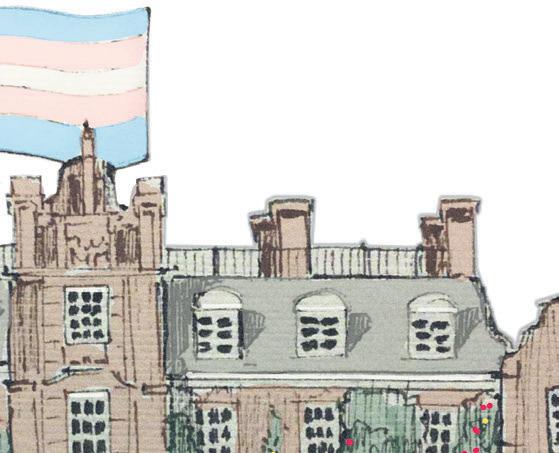

queer community at Newnham. When I think of Newnham’s trans+ community I think of life and laughter. I think of my best friend who brought me owers and ice cream the day after I was assaulted. I think of my college children and how I got to see them grow and ourish in this space. I think of how we have gathered to paint signs for protests. I think of how we have danced in the college bar, and shared dinners in the buttery, and bonded over drinks in our bedrooms. I think of our library and of the books I have borrowed from it that have opened my eyes to the true diversity of human experience. I think of the people who have taught me lessons about myself and the world. I think of the art that people have created at welfare events, of the bad singing at karaoke nights, and the captivating theatre at Butch Soc cabaret nights. Above all, I think of the witty, brave, intelligent, and kind people who lead joyful and ful lling lives here, and I wonder why anyone would try and threaten this beautiful space. ere is no need for a society that has made its central mission the demonisation of an already-marginalised group. True feminists see that our struggle for liberation from patriarchal violence is inextricably tied to trans liberation. We would all bene t from a safer world. Hatred does not deserve a platform; the joy of our trans+ community does.

Jasper Finlay Burnside and Duncan Paterson clash over

It might be strange to start o a head-to-head by agreeing with the other person, but Jasper does have a fair point: a Reform society would probably contribute positively to the political discourse going on in the student body at the moment, at least to the extent of it as an example of what not to do and what not to say. But if that is the case, why is there not one already?
It’s not like Cambridge students are alien to creating problematic societies recently…







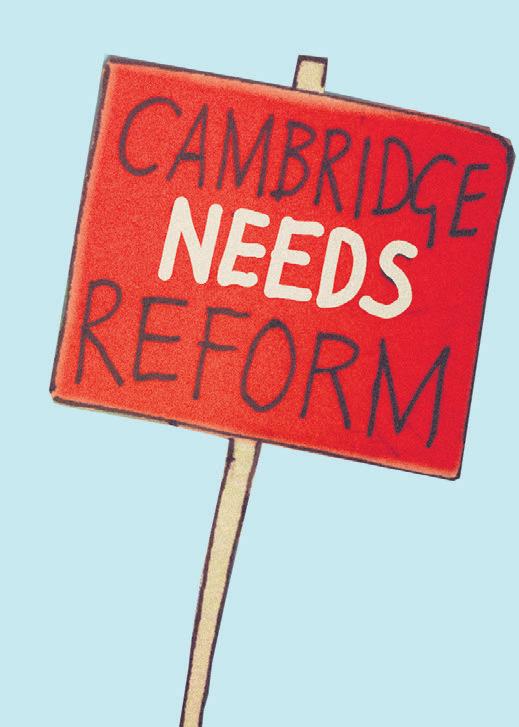



call the “wokerati” but what a normal person would call a well-rounded and considerate individual, is the type of person who is often on the receiving end of his hatred and wouldn’t exactly give the founders a large support base to choose from.










II think that, on a fundamental level, one of the reasons why there hasn’t been formed yet is simply because its founders would know the nature of the Pandora’s Box that they would be opening. Following a party line as volatile and vitriolic as Reform’s could lay them open to all sorts of accusations, and it wouldn’t work very well as a political society if they had to disavow Nigel Farage every time he blames the UK’s problems on immigrants, or calls young people propagators of woke ideology. e average Cambridge student, what he might
’ve always associated autumn with trying to nd cosiness and cheer in life to distract me from colder, longer nights. It’s the time for drinking hot chocolate, having feel-good movie nights with housemates, and seeking out any room in my medieval College with decent central heating. It’s also – if you’re unfortunate enough to be a nalist – a time when the question “What are you thinking of doing next year” creeps into sentences and destroys the sense of optimism you had spent a whole day cultivating.
ere’s no point dressing it up. 2025 is a really shit year to be graduating. e graduate market is the worst it’s been since records began. A mix of economic gloom and AI replacing entry-level jobs means that a degree from the most employable university in the country feels more like a one-way ticket to unemployment right now. Even if you are lucky enough to receive that fated email that doesn’t open with: “We regret to inform you…”, don’t get too excited about your future in corporate heaven. Chances are you’ll be working longer hours than the devil for a company that’d rival him in an immorality competition – all for a wage that’ll just about cover the commute to Canary Wharf.
❝ Should we all just drop out, retrain as a barista, and accept our fate? to creating
❝ It’s not like Cambridge students are averse to creating problematic societies...







As Jasper points out, when dialogue dies, so does fair and stable political representation; when the two ends of the political spectrum sever ties, the right falls into an ever-deepening spiral of echo chambers. Blind and deaf, they lash out and the resultant chaos is quite self-evidently displayed. However, his argument that we should welcome them to the table rests on the assumption that a Reform society would want to have a space at all. For a party line that displays so much contempt for other political a liations, it is hard to believe that their young followers might buck the trend and engage in amiable discourse with their fellow politically-inclined students.

While generalised characteristics of

the average Reform student might be the butt of a few jokes, playing with stereotypes is the weapon of the right, not the centre or left-leaning student. As such, when Jasper talks about the caricatures, and the distaste they create that drives people into the arms of Reform, I think he touches on a valuable point about the alienating danger that they represent, but it wouldn’t be like we’d be making the rst aggressive move; Reform UK’s policy is built on weaponising stereotypes. Healthy dialogue works in theory, when your opponent doesn’t make a living out of twisting words and images to their own political agenda. As such, although attitudes like those championed by Reform shouldn’t be left to fester in anonymity and should be publicly exposed, platforming them is the wrong way to go about such an endeavour.



And don’t think you can keep your conscience clean by opting for a master’s either. With cuts to scholarships across the board, you either need come from generational wealth or commit the heist of the century to be able to a ord postgrad fees. Even then, there’s no guarantee of a steady job at the end of that road, just another cli edge with instability and debt at the bottom.
So is there any hope? Should we all just drop out, retrain as a barista, and accept our fate? Well I think that maybe, just maybe, we all need to take some
deep breaths and slow down a little. Even when the economy wasn’t on life support, graduate life wasn’t as straightforward as: get a degree, get a job, move to Surrey with your partner and children. e fact is that employment has never been totally linear. Not getting that one consultancy grad scheme you de nitely really cared about doesn’t condemn you to never moving out of your parents place. Most people don’t stay in the same career their whole lives, and those who do probably had to retrain because they too made the mistake of doing a sociology degree.
And don’t forget, you’re still doing that degree. We’re lucky enough to study at one of the best universities in the Country in one of its prettiest cities, in what are supposed to be ‘the best years of our lives’. Ask yourself, ‘what are you going to nostalgise about in the future?’ Will it be all the amazing nights you spent with your friends avoiding responsibilities? Will it be getting the once-in-a-lifetime experience of being taught and lectured by genuinely world-leading academics in a eld you do, deep down, genuinely care about. Or will it be that time you had a nervous breakdown staring at a cover letter that recruiters probably won’t read. It might seem obvious when I spell it out like that, but Cambridge is so fast-moving that it’s easy to xate on the compounding stress and mania of it all. So don’t feel guilty about experiencing all the social events and extra-curriculars


that make Cambridge so fun – anyone who calls them a waste of time is just boring. Even as I’m writing this article, I probably should be nishing my application to the latest no-hoper journalism grad scheme, but I don’t regret my decision in the slightest.
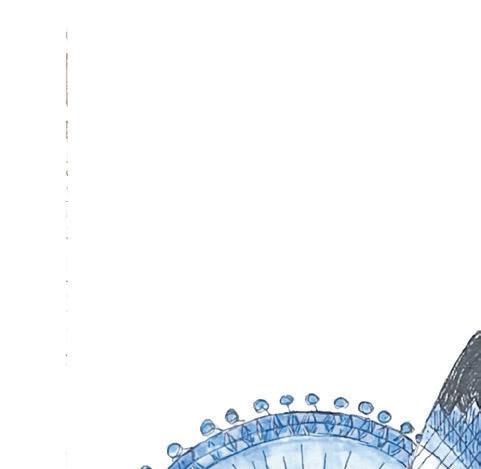
Maybe I will be one of the very lucky few who end up getting a job with halfdecent pay that I genuinely enjoy when I graduate. If that is the case, then feel free to complain and roll your eyes at the inevitably self-agrandising LinkedIn post that comes with it. But I won’t be ashamed if it works out di erently. I won’t chalk my time up to Cambridge as a failure because I left without a job. I will have enjoyed my degree, made friends for life, and gained
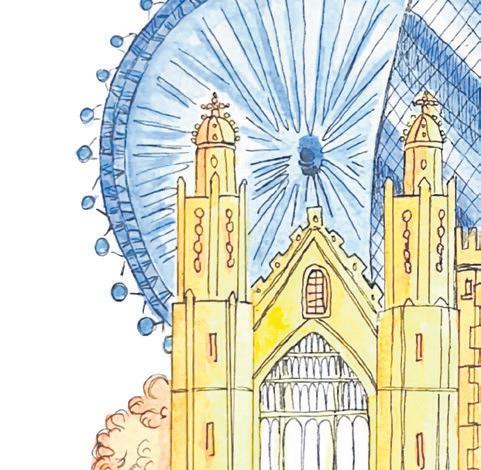

genuinely useful skills that will serve me well in a future career – even if I don’t know what that is yet. It is okay to be able to say you don’t have a plan for next year. Finding the right thing might take time, and that’s normal. And I can guarantee that in ten years time, you won’t be sitting in the pub still hung up on how much better life might have been if you just got that investment banking job.



When students lined up to debate American farright commentator Charlie Kirk in May, the event quickly went viral. Just four months later, news broke of Kirk’s death, a moment that reignited global conversations about political division, free speech, and the importance of public debate. I spoke to students who faced Kirk in the Union’s despatch box about what it means to uphold open dialogue in our digital age, especially in engaging with those whose views you fundamentally oppose.
e packed Union chamber had a ery atmosphere. Damsith Wimalasena from Lucy Cavendish College was one among the several students who stepped up to the lectern and faced Charlie Kirk. On his motivation to debate Kirk, Wimalasena commented that, “someone must challenge ideas, especially the ones we disagree with. Silence isn’t a strategy.”
For ARU graduate James Loveridge, taking part was a way to show that “disagreement doesn’t have to be hostile.” He believed that political violence “is not a sign that we need less debate: we need more.”
Graduate Rudi Ellis-Jones, who also debated Kirk in Cambridge, added that the focus should not just be on Kirk himself, but on the wider picture: “We should re ect on all of those lives and what it says about the world we live in, rather than focus on division.”
Wimaselena outlined that free speech is “the ability to express di cult or unpopular opinions without being immediately villainised.” Unfortunately, since
the debate, the Sri Lankan student has been on the receiving end of online racist abuse. e attention online has made him care “less about noise and more about purpose.” With the debate going viral on social media, his video received more than 40 million views online.
❝
Political violence ‘is not a sign that we need less debate: we need more’
Media coverage and online discourse undeniably exposes debate in a way that can put pressure on free speech, yet the Kirk debaters I spoke to argued that it “means what we say matters more.”
Fitzwilliam student Tilly Middlehurst has seen an explosion in her following since the debate, with her Instagram promoting the importance of debate as political action.
An Instagram post, which some deemed o ensive, recently led to Oxford Union president-elect George Abaraonye receiving a no-con dence vote. e Oxford Union “unequivocally condemn[ed] the reported words and sentiments.”
However, the Union was also “deeply concerned” by the subsequent racial abuse and threats he received, which
undermined the bastion of free speech the Union champions. Middlehurst commented on an Instagram post, appalled by “some of the most vile racist attacks I have ever witnessed online” that Abaraonye was subjected to.
All interviewees re ected on how the digital era has reshaped and threatened free speech. Archie Mackintosh, from Jesus College, pointed to the anonymity of the internet, which allows people to “spread hate and disinformation with no fear of social consequence.” In the online space where algorithms continually reinforce echo chambers of belief, he warned of “increasing political polarisation.” Trinity Hall student Kai Bevan shared a similar concern, noting that with the rise of AI, “ideas, particularly ‘bad ideas’, spread more quickly than ever.” In such a climate, public debate feels vital. As Ellis-Jones aptly put it: “Debate holds people to account in an age where accountability is an option, not a requirement.”
Debate is a necessary standard in society and something that should be upheld in Cambridge. But in an age of ‘cancel culture’, what does free speech really look like in student life? Wimaselena believed that students continue to be interested in debate. But some remain silent, “not because they don’t care, but because they don’t want to deal with the consequences of saying something
‘wrong.’”
Bevan, however, is not concerned about being cancelled. He explained that “any view I hold, I believe I can rationally justify. I am also open to changing my mind about every single opinion I have given su cient evidence.” Ellis-Jones added that “if the majority of students use their freedom of speech to argue against you – that’s not being cancelled, that’s freedom of speech, and that’s life.”
Ultimately, Mackintosh reminded us that, “if you think you’re correct, you don’t win people over by silencing opposition. You win them by meeting them with grace, humility, and respect.”
Political events, like the death of Kirk, inevitably leave society re-examining age-old questions of dissent and free speech. Wimaselena hoped it would “teach us some boundaries, between disagreement and dehumanisation.” Loveridge added that while some students hold back from sharing their views, “university should be a place where people can speak openly and learn through disagreement.” It is now more essential than ever to engage in open, meaningful discussion, both within universities and beyond. As Mackintosh summed up: debate is “not just a nice to have it. It’s a must.”

Annie Rainbow spotlights the vital role college nurses play in supporting students’ physical wellbeing






On Wednesday afternoons, a group gathers in the Fitzwilliam’s light- lled gallery, charcoal smudges on their ngers. ey enjoy art and creating together without the expectation of talent. On Monday evenings, students roll out yoga mats, the hum of central Cambridge soundtracking their poses. ey stretch and, most importantly, they breathe. On Tuesdays, students can sit down and enjoy crocheting with a mug of tea, and are given the space to simply watch the steam dance with the sun. Each activity is run and supported by a college nurse; the unsung champions of student wellbeing at the University. Across Cambridge, college nurses form a quiet but essential backbone of student life: part GP, part counsellor, part surrogate parent. Almost every college employs a nurse, normally part of a larger wellbeing team. ey are highly trained and deeply passionate about providing students with the tools and time to care for them-
“I wanted to be really visible and accessible,” Jan told me. When describing her wellbeing initiatives her care is so apparent that you feel warmer in her presence. While all college nurses are no-nonsense about student con dentiality, Jan did not feel stuck in the bound-







aries of her work and home life, “my students know my grandchild, they’ve done easter egg hunts for him!” On her Fitzwilliam art project, she wanted to highlight to students that “we’re equals, we all have problems.” Trust is incredibly important to her role, “I don’t want to pathologize or infantilise students,” she told me.









❝ Part GP, part counsellor, part surrogate parent





you are constantly getting feedback from both sta and students, in order to stay quali ed.
Rachael Arkle sees around eight hundred students throughout the academic year at Kings, not including those she sees during breaks. When listing her background, including (but not limited to) time in neurosurgery, A&E, and occupational health, somehow her three degrees are not the most impressive part. She advocates for students through different initiatives, including yoga, wellbeing workshops and talks, bene ting from “the support of the college behind” her. e community, though, feels like her college’s biggest strength. Whether with the gardening or housekeeping teams, being surrounded by “sta that really care” helps her feel motivated.
with them, that is most valuable for her. “I really do invest in them,” she admitted, enjoying “feeling like you’re helping people” as well as truly bonding with them. In fact, “at the end of Easter term, watching them all graduate” made her feel as though she was a surrogate parent, leaving her “in oods of tears.”

selves. After working in Pembroke for eighteen
years, Jan Brighting

verse issues: “I have
recalled the pressure of caring for such dilost sleep at night that I may have made the










Joining Pembroke after a wideranging career, once being an addiction counsellor as well as a quali ed teacher in a prison, Jan claimed that “you need to have a broad experience, you cannot have a young [college] nurse.” To be a college nurse, you must be immensely well quali ed. Aside from having professional development reviews every three years,

Lucy Turnell gets into Selwyn college at 8:30am, already aware of the incident reports from overnight. She prepares herself for meetings, appointments, and any wellbeing initiatives scheduled for that day. With eight to ten students per day, appointments either twenty or fourtyve minutes, she can feel the weight of the topics discussed. To ground herself she enjoys “walking through grounds and seeking a college community in its setting; it stabilises me.” She told me that “not a day goes by when I don’t look out the window and think how lucky I am,” not just to be in such a beautiful place, but just to be with such a lovely student group. It is the students, and her bonds
Her room is a vibrant haze of plants, so vividly green that you feel your lungs sigh in relief as you enter. She described gifting students the “babies” that her plants propagate, as part of her ‘adopt a plant’ scheme. As epitomised in her ‘clangers’ anagram for wellbeing, Lucy believed that the evolution of the collegiate nurse role is about teaching wellbeing. She said that she wanted “to work more closely with students […] rather than deliver a program, I would like to enable a program.” Ultimately, she sought to encourage proactive steps for health education beyond university. eir positions are fast-paced and complex but ultimately rewarding. Jan, on the cusp of leaving her role, re ected that “this place gave me hope”. Rachael reported feeling “very empowered in my role,” and Lucy a rmed that the college nurse is “a very ful lling job.” With all their attention on student advocacy, college nurses truly are the beating heart of the college community.
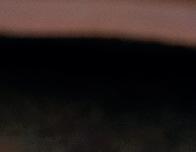


SCAN QR TO WIN



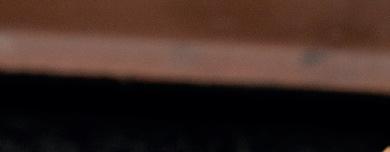

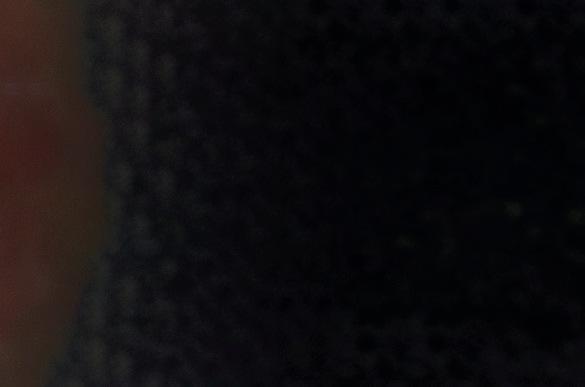




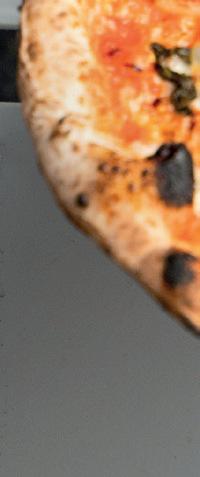





Crossword by Cheggers
ACROSS
1 Plant for vehicle country (9)
6 Gas destroys organ (5)
9 Downgraded, for example in faulty treadle (9)
10 Steady pressure inside Belgian city (5)
11 From the start princeliest haft was ruined (2,3,5,5)
13 Inspect gold and start to develop it (5)
17 Tolkien character su ers penultimate loss in Spanish region (6)
18 Turn over stupendous interior (5)
19 Postman starts to relax over new customer (6)
20 Hunks initially start tidying under direct supervision (5)
24 Busted, as a paint thief might be (6,3-6)
26 Rock breaks leash (5)
27 Startle and disappear without Henry in gale (9)
28 Embellish love after nally changing direction (5)
29 Revises messy edginess after Romeo (9)
QUICK (same answers):
ACROSS
1 US state (9)
6 Organs of an animal (5)
9 Naturally occurring mineral (9)
10 Alcoholic drink (5)
11 Shift in power source (15)
13 Protective garment (5)
17 Skulk (6)
18 Curry (5)
19 Scattered (6)
20 Bundle (5)
24 Process of ordering by letter (15)
26 Middle Eastern country (5)
27 Torment (9)
28 Short musical composition (5)
29 Informal (9)
1 As croci break in Mediterranean island (7)
2 Associated trader rises up over treatment at rst (7)
3 Smash up gem in relative increase (7)
4 Polar dweller hides timber at rst – understand?
5 Poem in both North and South intersections (5)
7 Revolting pellet ran all over the place (9)
8 Congest spoilt vow record (9)
12 Reportedly dragged animal (4)
14 A Spanish degree? She would without shame! (9)
15 Unusual and against the rules (9)
16 Cantaloupe appears around vegetable (3)
18 Come together without energy quantity (4)
20 Fake answer from healers (7)
21 Revoking downfall (7)
22 Sorrow ends broken in special forces (7)
23 Confused and burdened after losing chief (6)
25 Message received backwards in obscure gorge (5)
DOWN
1 Activist and politician (7)
2 Ballistic (7)
3 English football team (7)
4 Egyptian god (6)
5 Language (5)
7 Silver sea-dweller (9)
8 Nearby galaxy (9)
12 Sweet drink (4)
14 Slightly sparkling (9)
15 Caught (9)
16 Ball (3)
18 Protrusion (4)
21 Aristocratic (7)
22 English actress, Emerald _____ (7)
23 Groom-to-be (6)
25 Supplementary (5)
ACROSS
1 Low grade dirt mixed with earth (5)
6 Sending around greeting in the year of southern capital (5)
7 Help an Irish saint (5)
8 Call over the phone and squeeze (5)
9 Two German regiments with attitude (4)
DOWN
1 Warm up? What gives? (4)
2 Hotel goes on television for keratinous growths (5)
3 Girl represented in penguin diagram (5)
4 Some horses chewing oranges, for example, gone missing (5)
5 Sounds like a bell when good interrupts harsh noise (5)
1. What is the only country that ful ls both of these criteria: a population of under two million and a mountain higher than 7000 metres?
2. In anatomy, what eight-letter adjective refers to the 12 individual vertebrae from the bottom of the neck to the lowest pair of ribs, constituting the longest section of the spine? It is derived from the biological term for the section of the body between the neck and the abdomen.
3. First published in 1945, the short story Edward’s Day Out was the rst of what series, now a global multimedia franchise?
4. Since 1986, Cheddar cheese has not enjoyed a Protected Designation of Origin (PDO). Which variety of cheddar outside England was granted Protected Geographical Indication (PGI) in 2013?
5. From Sanskrit meaning ‘to split’, what short word is used across the cuisines of South Asia in two senses: as a general term for dried lentils, peas, or other pulses, and by extension, as a general term for soups or stews made from such pulses?
▼ Iris Chapman


Varsity's archivist Iris Mamier explores the history of student activism and divestment campaigns
Cambridge students recently voted in an SU referendum in favour of ending the University’s investments and collaborations with “institutions involved in occupation and weapons manufacture”. In light of this result, I have delved into Varsity’s archives to trace the history of student activism in Cambridge and the various divestment campaigns over the years.
e Cambridge University Endowment Fund (CUEF) has been described as one of the largest in Europe. However, I found surprisingly little evidence in the archives of students targeting the University’s investment portfolio before the 2000s. A 1981 article details the presence of not only 300+ students, but also the Cambridge Students’ Union (CSU) president Nick Alexander, marching with a CSU banner, in the CND rally to “Stop the bomb”.
Apartheid in South Africa became a focal point soon after. In May 1982, visiting South African Ambassador Marais Steyn “nearly came to a sticky end when three eggs were hurled at him,” while students chanted: “What do we want? An end to Apartheid!” One of the two student egg-throwers who was arrested and charged under the Public Disorder Act was CSU Executive member, Dave Kitson. Emma JCR also later passed a motion of censure against their Senior Tutor, Dr Baker, for allowing the visit to happen on college property.
Divestment campaigns came to the fore in the 2010s, particularly concerning fossil fuel industries, as the CSU put pressure on the University to reduce its carbon footprint. In 2013, Varsity criticised the links of various colleges to companies such as BP, Exxon Mobile, and Lukoil. Not only, students argued, was Cambridge uniquely positioned to “make a social and political statement,” but the contribution of their yearly tuition fees to the CUEF gave them the right to say: “I am a stakeholder”. However, such campaigns faced opposition. In the same edition, a comment article was published in defence of Cambridge’s investment in “big oil,” arguing that Cambridge could push for higher environmental standards more e ectively from within. “Of course these companies are not perfect,” the writer conceded, “Exxon continues to question global warming.” Nevertheless, at least in 2012 it donated over $200 million to charity, they argued. A decade later, the University is set to divest from fossil fuels entirely by 2030, a move followed by universities with even larger endowments such as Harvard. Next week, the University’s governing body will vote on whether to divest from arms companies; it is clear that student activism has had tangible consequences over the years.
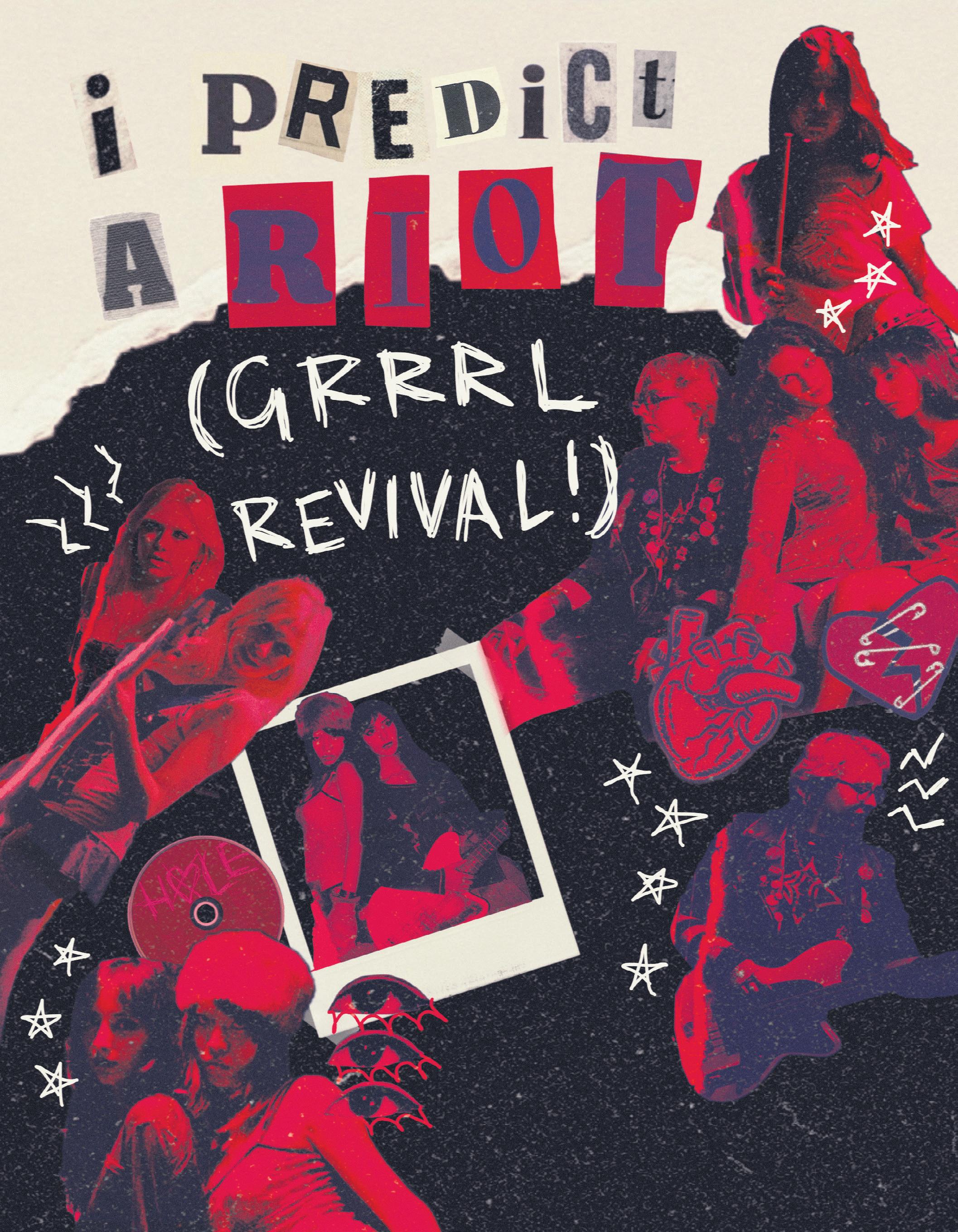
Welcome back to Varsity Blind Dates, where hopeful student singles put their faith in out trusty matchmakers – and you could be next!
So, you met at the Eagle. Was it nerve-wracking walking up to three people?
Not really, that kind of thing doesn’t give me anxiety.
I think a lot of people would nd that scenario intimidating. Overthinkers.
Did it feel like more of a group hang-out or two separate dates?
Separate, thankfully.
How would you describe her?


I’d thought a group chat with two random sets of friends would be weird. Did it take much to get the conversation going with Carly?
Really nice, kind, and gets my humour.
In what way?
Well, I made some pretty risky jokes and she took them quite well.
Had you decided at that point you didn’t have much to lose by making jokes?



So, why did you sign up?
I gured it would be a fun thing to do in my nal year!
And how was it having Meredith with you?
It was so nice – I mean, the debrief on the walk back…
I heard he made some risky jokes, how did they land?
He had some pretty contentious takes on gender – I hoped in jest!
Oof. How would you describe him?
Approachable, interesting, accomplished.

No, I would have done it either way.
Were you sure of the vibe between you guys from the get-go?

No, everything was pretty smooth. Obviously, we started with the basics and moved onto deeper topics but, in general, it wasn’t hard to keep it going. What sort of deeper topics?


Like, controversial current debates. Did you guys have the same opinions?
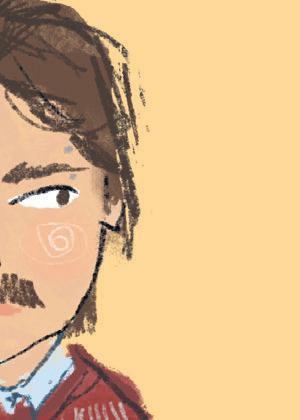


We could agree to disagree. How diplomatic of you. Did you have much else in common?
No.

What made you sign up?
Well, It was Carly’s idea
But just to meet someone and see.
Did you get along with Chris?
Well, he was very good at asking me questions, and I was very good at answering them! I was less good at asking them back though. I feel like he learned a lot more about me than I did him. How would you describe him?
He’s lovely, he came across as really nice and was actually trying to get to know me. What was the best thing about him?
What were your rst impressions of Rajesh?

How did you feel about the match in general?
For me, I guess – but for her, I don’t know. I de nitely enjoyed it! But I don’t think I’ll be seeing her again. Did you go anywhere afterwards?
After the pub we went to see reworks, they were over by the time we got there though. at’s a shame.
I’ve seen enough at the Trin May Balls. How did the night end then?

We just exchanged Instagrams and went back to our colleges.
So, what would the night be on a scale from one to ten?
An eight. Regardless of what she says, I had fun.
my talking entertaining.
Do you think you had better chemistry than Carly and Rajesh?
Yeah? I have no idea what he thought of me, honestly. We both had a good time, I think, but I don’t know on what level. Was it romantic for you?

Maybe! I had a good time. Were you wanting it to go on longer?


Well, he’s interested in animals, so that was a positive. Any other de nitive green ags?


Yeah, I would’ve stayed. When we neared Trinity, Rajesh was like “okay, goodbye then!” and Chris went with him. Bit of an abrupt ending then? A little bit. I think he just didn’t want to abandon his friend. Do you have any intention of reaching out?
It was exciting to see him. He was goodlooking and I didn’t recognise him, which was a relief! How did it go from there?

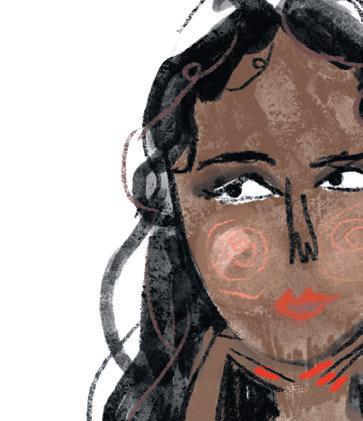


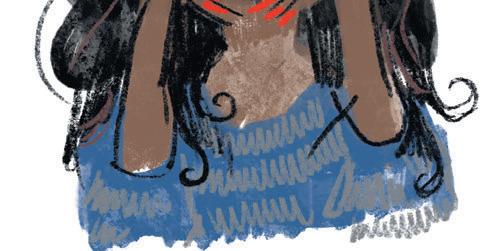
He was de nitely condent, so that helped – I don’t think there was a single awkward pause throughout the date. We’d already gotten drinks when he arrived though, so he just proceeded to drink like six glasses of tap water.

But it was pretty easy conversationally, at least?
Well, we didn’t have too much in common but he’s an interesting guy.
What were your rst impressions?
She seemed very nice.
Was conversation easy?
Mostly I probably asked too many questions. She was very passionate about rowing so she talked about rowing a lot, but it was cool that she’s passionate.
Did you have any joint interests?
We didn’t have any interests super in common. We spoke about music but she doesn’t really listen to it, for example.

Any particular green ags from her?

e fact he’s doing economics but doesn’t want to go into nance! What impression do you think he got of you?


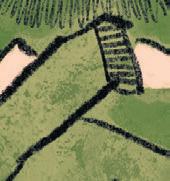
Hopefully positive! I’m hoping he at least found

I actually sent him a message last night, and he replied. What did you say? Just that I’d had a lovely evening and that maybe I’d talk less next time…
So, you’re leaving the door open?
Yeah.

So, on a scale from one to ten it would be… A solid seven.
She volunteers at all of these animal places over the summer, which is very cool!
Any particular icks?
Well, she’s very interested in rowing – it’s not necessarily an ick! But it’s a very de ning characteristic.

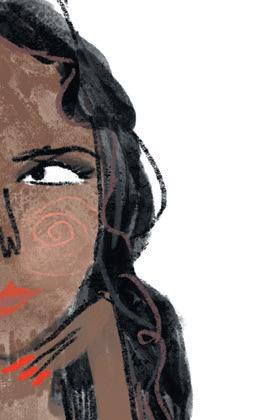
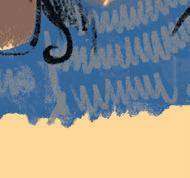
I was super con dent about it going in – I had a good feeling!
– but ultimately it was more platonic. Did it take you long to gure out the vibe?

It was over the course of the evening, but it was pretty clear by the end. How did the night come to a nish?
Well, Rajesh suggested leaving the pub – he still hadn’t gotten a drink at that point – so he seemed pretty eager to leave.

And what would you rate the night from one to ten?
As a hangout, a nine. As a date, a six.
want that. So, nothing about her speci cally!
Have you been in contact since?
We actually both had a rowing event today so she wished me luck, which was nice.
Any mention of going out again?
Not at the moment.
She told me she hinted at it…
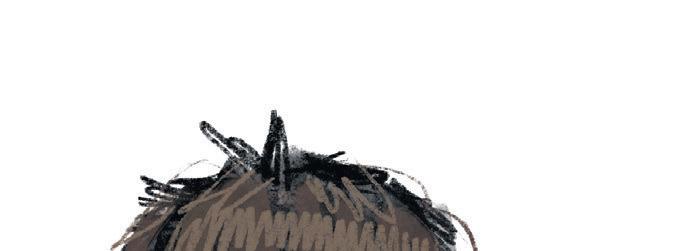

Um… I hadn’t realised that. I’m completely oblivious!
So, you’re not taking it further?
It’d be really nice to be her friend, but I’m not actively searching for anything right now. How did you guys leave things at the end?
I’m getting the impression that it wasn’t a perfect match?


I think if I was wanting to be with someone long-term I’d want them to have similar ideas for the future – like, she loved living by the coast, and I don’t know if I’d



A six?


We went on to Midsummer Common to see the reworks, which was a nice opportunity to talk to everyone.
I hear you didn’t actually see any reworks?
Yeah, we missed them.
Ironic, given the lack of reworks between you guys… Not a massive rework show, yeah. But she was lovely!
So, on a scale from one to ten, what would you give the night?
(All names anonymised)

Finn Costello
O’Reilly is here with a recipe to quell the winter
The approach of winter is often accompanied by a feeling of loss. Light, warmth, and colour start to diminish. A collective retreat indoors begins. You’d be forgiven for feeling that the world has lost some vitality. For me, in this weather, food is the antidote, and there is surely no food more iconic or more apt for providing warmth than a rich, sturdy bowl of soup. So, here is a rameninspired, salty and umami rich noodle soup to get you through the winter months.
Ingredients: Tare
● Smooth peanut butter – 3tbsp
● Miso paste – 2tbsp


Soup base
● Mushroom –300-500g, thinly sliced (shiitake, oyster, enoki, or even chestnut/button will work great)

cooking (check packet instructions for this), add the pak choi.
● Soy sauce (light or all purpose) – 3tbsp
● Rice vinegar – 0.5tbsp (sub with apple cider or white wine vinegar)
● Chilli oil/chili crisp –0.5-1.5 tbsp (depending on spice tolerance)




Garlic – ve or six cloves, minced


● Ginger –thumb sized piece, minced
● Water or chicken/ veg stock –~1-1.5L
● Noodles –400g pack
Toppings:
● Boiled egg –1 per person, sliced in half.
● Pak choi –separated into leaves
● Spring onion –3 or 4, sliced
Chili oil/chili crisp –drizzled



Method: Tare
● Mix all of the tare ingredients together in a bowl. It should be similar to the texture of wet sand.
Soup base
● Heat 1tbsp of vegetable oil in a high sided saucepan or wok (needs to t 1–2L of water) over medium-high heat, add the chopped
mushrooms on a medium heat for ten mins, or until their water has reduced. is is when they have signi cantly reducedinvolume, become a deep brown, andthe boiling sound has become more of a sizzling sound
❝ For me, in this weather, food is the antidote
● Add garlic and ginger and fry for one minute, stirring constantly.
● Add the chicken broth, stir and set to the side, or place on a low heat (you’ll need to make sure it’s boiling before serving, though).
Toppings – one pan!
● While the mushrooms are frying, ll a saucepan with boiling water (enough to cover as many noodles as you have), and bring to a gentle simmer.
● Gently lower eggs in (one per person) and remove after six minutes. Put these in a bowl of cold (or iced if you can be bothered) water and set aside. Peel o the shells when you have a spare moment.
●To the same water, add noodles and increase the heat to a more vigorous boil.
● One minute before the noodles have nished
● After one minute, remove noodles and pak choi and quickly rinse with cold water to stop cooking. Set aside until time to serve.
Assembly
● Place 1tbsp of tare into the base of a bowl.
● Add soup base, making sure it is boiling when you add it. Stir to dissolve.
● Taste and consider the salt level. If it is too salty, adjust by adding more broth/water. If it is not salty enough, add and dissolve more


pings (and reserved mushrooms).
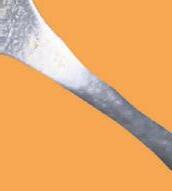









❝





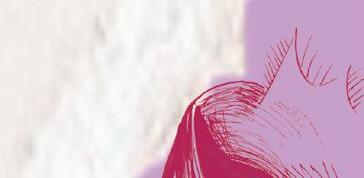








Riot Grrrl is more than a genre – it's a political movement
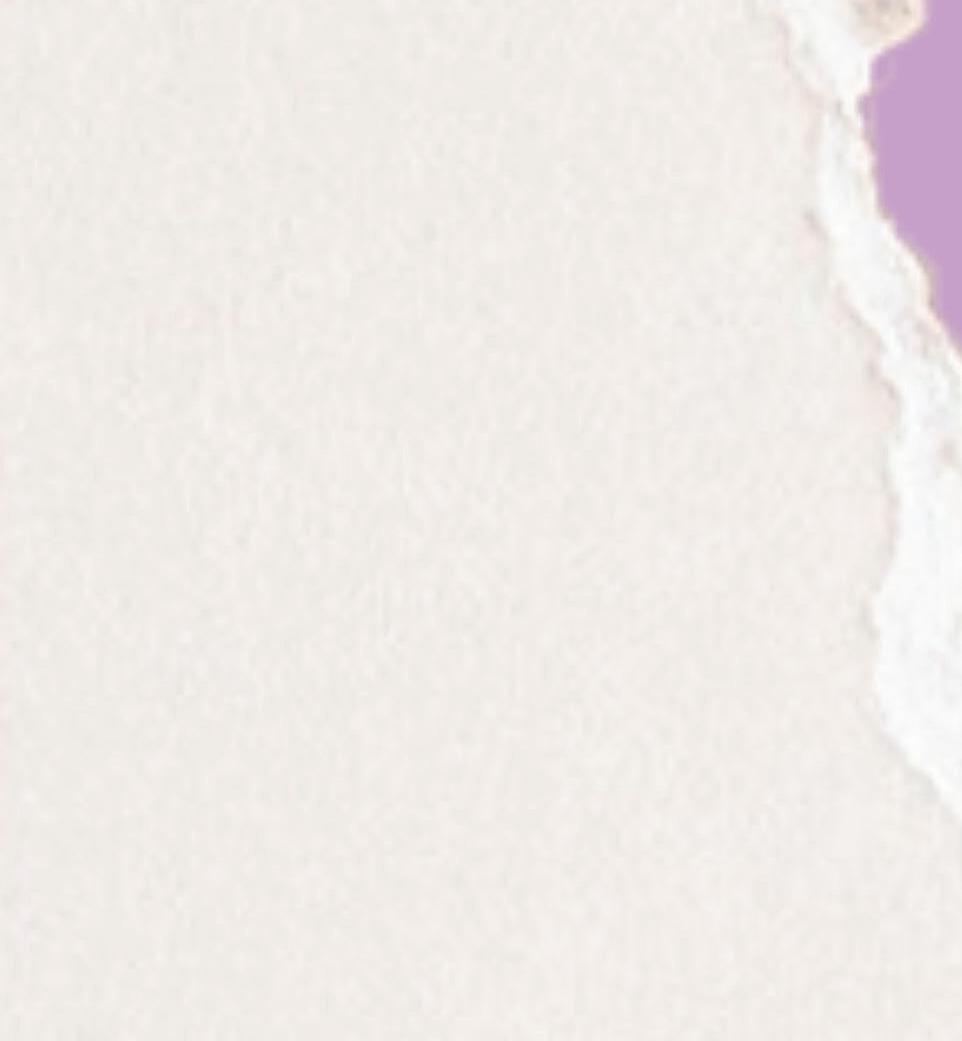
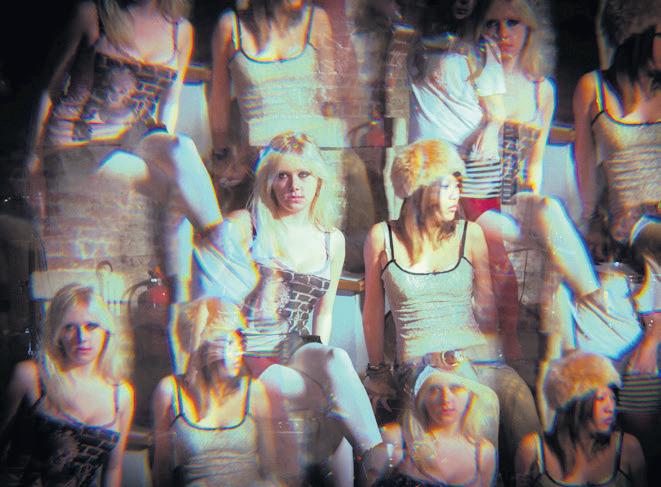








explores the punk fashion behind

n 1976, the London punk zine Sni n’ Glue declared: “Punks are not girls.”

e punk era saw the rise of several iconic bands such as e Sex Pistols, e Clash, and e Ramones – to name a few – but they all had one thing in common: they were all male. Riot Grrrl began as a demand for a safe and inclusive space for women within the
Before the success of its music, the Riot Grrrl movement took shape through physical media to spread its message. It was in Bikini Kill’s publications that terms such as ‘girl power’ were coined. Tobi Vail, a key gure in the creation of fanzine, wrote: “I feel completely left out of the realm of everything that is so important to me … and I know that this is partly because punk rock is for and by boys”.

became clear that Riot Grrrl is certainly not dead; its relevance has only multiplied with digital forms of messaging and music.
is frustration fuelled Tobi Vail and Kathleen Hanna’s dissemination of their zine, which would later evolve into one of the foremost Riot Grrrl bands,Bikini Kill – a four-piece band fronted by Hanna and originating from the Paci c Northwest scene in the early 1990s. At gigs, Hanna would call “all girls to the front” – initially a safety measure to prevent women from being trampled in mosh pits, but also a phrase emblematic of the movement’s agenda: to allow women to occupy the highest spot of visibility. Men could be in the room, but they could never dominate it.






At the centre of the Riot Grrrl movement was its distinct fashion. In the ’90s, Riot Grrrl fashion was inspired by punk rock style, while reclaiming girlishness, incorporating unabashedly feminine elements such as pigtails, baby tees, sequins, and hearts. It embraced the ‘Grrrl’ part of its title – rooted in the idea that women often felt most empowered when they were girls, before their identities became shaped by expectations and beauty standards.

Bikini Kill bands, Bikini as Barwald,
I spoke to one particularly active Riot Grrrl band, described as “vanguards of the genre’s new wave”. Talking to the lead swinger of t@b grrrl, Gigi Barwald, about the fashion of Riot Grrrl today and the movement’s current state, it

I asked how Riot Grrrl fashion does or does not impact Barwald’s style choices and the visual presentation of t@b grrrl. Barwald described the band’s merch as rooted in the DIY ethos that was so central to the original movement. e merch incorporates key features of punk fashion – plaid, denim, safety pins, and bold colours – but Barwald emphasised that Riot Grrrl is not bound by a dress code: “I think it’s important to recognise that not everybody looks the same. ere’s no staple for how a Riot Grrrl needs to dress.” ere has, however, been a clear evolution in Riot Grrrl fashion since the ’90s. Barwald gives one example of how “in the ’90s, girls were writing ‘grrrl’ on their wrists, but now I’m seeing patches and jewellery with ‘grrrl’ on it”. She continues, “I think the point of Riot Grrrl is to be political; it’s more than just a genre or form of style – it’s a political movement.” She points to one particular t@b grrrl song, ‘so what’, that speaks to this enduring connection: “I talk about dressing however you want … you just have to be authentic to yourself and own it.”
Inevitably, Kathleen Hanna is mentioned in our conversation. Barwald praises her, particularly admiring how Hanna empowered herself through stage out ts “to further a political message … like that iconic out t where she’s not wearing any pants – showing how you can look, but you can’t touch.” Barwald recalls how, at their rst gig at a fraternity house, she only wore underwear and wrote ‘grrrl’ across her chest as “an homage to Kathleen [Hanna]”.
I notice that our conversation – and indeed the movement – seems rmly planted in American soil. Beyond America, can Riot Grrrl resonate with people in smaller cities like Cambridge? “I think [Riot Grrrl] does resonate with people not only in the States, for sure … the major notions of what we’re talking about can be taken in by everyone,” Barwald responds. “Riot Grrrl 2025 is a place for anyone who’s not a cis-het man to have space in the music scene – to play, to enjoy, to experience.” And surely, we need that space in 2025 more than ever.
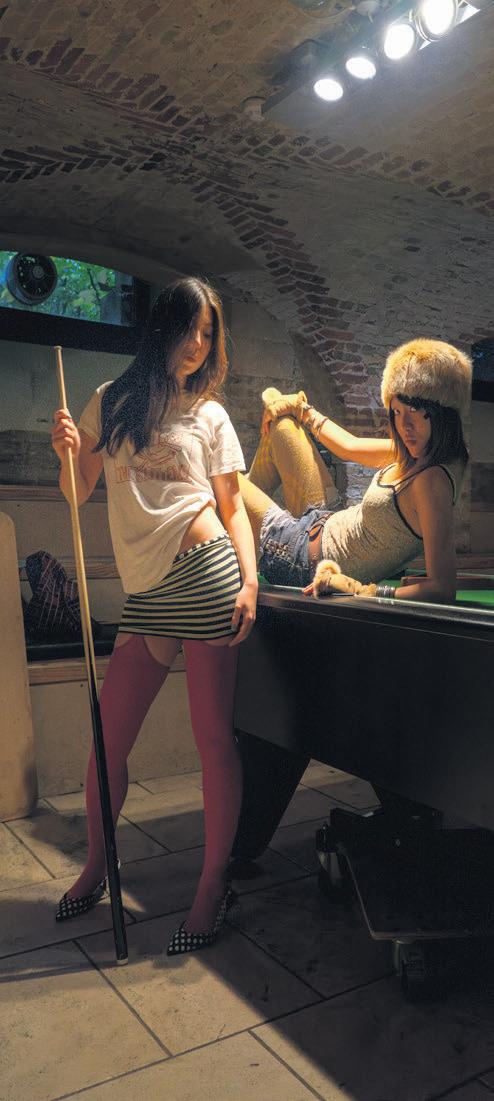



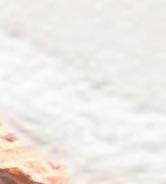






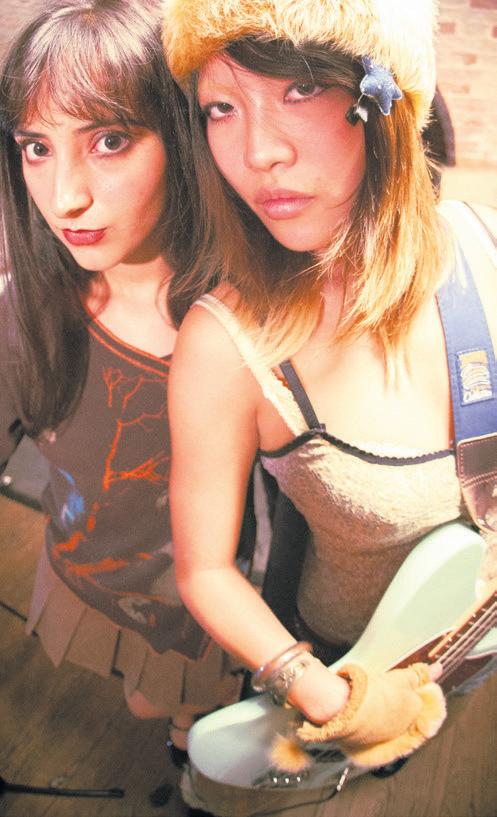
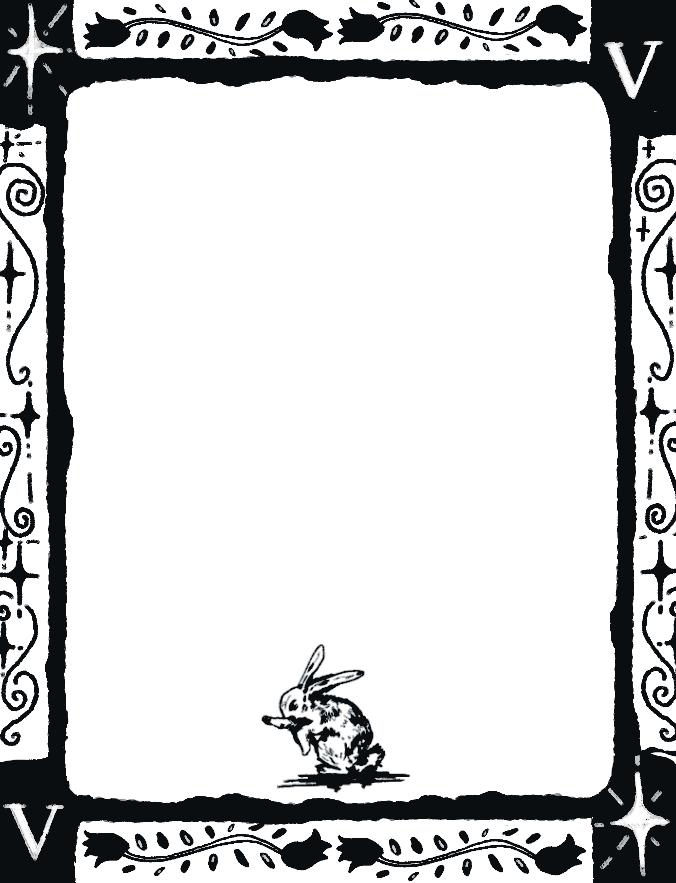
Now in its 34th year, he Mays publishes the best of student writing and art from the Universities of Oxford and Cambridge. Credited with launching Zadie Smith’s career, previous guest editors have included Kate Bush, Stephen Fry, Patti Smith, Jarvis Cocker, Ted Hughes, and many more.
We are currently looking for the following:
• Two Deputy Editors (with In-Design Experience)
• Oxford Liaison Oicer (Oxford only)
• hree Poetry Editors • Two Arts Editors
• hree Prose Editors • One Illustrator
To apply please send your CV and covering letter with a note of the role(s) that interest you to: mays-editor@varsity.co.uk
THE APPLICATION DEADLINE IS:
MIDDAY MONDAY 1ST DECEMBER 2025.
Current students at Oxford or Cambridge are encouraged to apply for any of these roles. (Student submissions for art, poetry, short stories etc will open in early 2026)
Can you remember when you last did nothing? is question, poised by Helen Cammock in her 2020 piece of the same title, seems to encapsulate the gentle challenge that is at the heart of ‘ e Sleepers’ exhibition. Curated by Laura Mosely and free to visit in Murray Edwards College until February, this small exhibition explores the articulation – and artistic representation – of sleep and rest.




In Giorgione’s Sleeping Venus (1510), the first known reclining nude, a female gure lies on a sumptuous bed of fabric, breasts bared in a fantasy of male desire. rough this painting, Giorgione catalyses a tradition of masculine voyeurism; from Klimt’s fascination with the sleeping woman to Picasso’s Man Looking at a Sleeping Woman, the sleeping feminine has historically been an erotic gure of sensual passivity. Mosely’s exhibition, however, marks an important shift in focus, as her selection of 12 female artists aims to display work made by women on their own terms. As the writing on the wall suggests, “scenes of rest have long been a generative motif for women artists, helping them to articulate complex and di ering experiences of family, health and work”.



scape populated by both oil paintings and embroidered quilts.









Hanging large in the corridor is Legally Stev (2024), by Bambou Gili. A vivid splash of colour on the white walls, the piece depicts a blue-toned gure lying on the bed, expressionlessly gazing at a phone while the green woodland looms, ignored, in the background. Time is indistinguishable, the atmosphere liminal. At once otherworldly and painfully familiar, the painting – according to its placard – “encourages us to think about how, for many, technology and rest have become intertwined”. Indeed, as the often used phrase ‘doomscrolling’ indicates, our obsession
with social media is often more draining than reviving.

media represented in Legally Stev. e painting, however, is undoubtedly a product of its modern time: Montgomery attempts to “wrestle the image
❝
Tucked away in a forgotten corridor and immersed in the soft undulations of light and sound from the water outside, the restful space of the exhibition is a mirror of its subject. All alone on my visit, the almost-silence was the perfect backdrop for contemplation. And so, bereft of distractions, as I so rarely am, I was easily absorbed into the tranquil world of the exhibition – a multimedia land-
Yet it is Seawind (1995) by Kate Montgomery that best catches my eye. ere is something medievalesque about the piece of tempera on wood, perhaps in the mosaic-like patterns or re ective shine; it seems hard to believe that it was created merely 30 years ago. A woman sits in prayer-like contemplation, gazing upwards in a reverie. e room is empty except for a

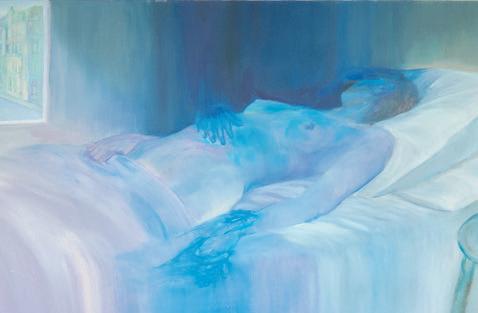
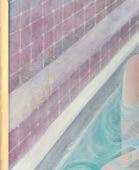






bed – a space dedicated solely to rest. Behind the woman a curtain sways, revealing urban life beyond. It seems to be a memory of a long-forgotten time, a technologically absent period before the damaging encroachment of social
Emily Cushion (Arts editor) –



e sleeping feminine has historically been an erotic gure of sensual passivity


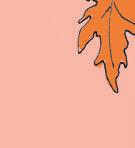

of the resting woman away from male artists , reimagining the traditional eroticism as a representation of her own motherhood. For the mother, such moments of interrupted thought are few and far between, ever more valuable by result ere is no denying that the exhibition is rather small, taking no longer than 15 minutes to study each artist in detail. While each piece certainly has its elements of interest, I did nd some to be less stimulating than others: Ann Dowker’s Karina by the Window, for example. Although for me the exhibition was just a little too tiny to justify the halfhour walk, for those in or around Murray Edwards, ‘ e Sleepers’ is a great (and free!) way to dip your toe into the Cambridge art scene. Whether you want to challenge your patriarchal notions of sleep, nd new female artists, or even just spend ten minutes in silent contemplation, the exhibit is certainly worth a visit. After all, standing in front of Cammock’s green canvas, I cannot, I realise, remember when I last did nothing.
PHOTOS COURTESY OF JO UNDERHILL
































Having burned through an evening as a teenager, I had high hopes for Circe – hopes that were exceeded by Miller’s incredible re-telling of the the epic and makes it novel. While Odysseus certainly features, it is Circe, the exiled sorceress daughter of god Helios and nymph Perse, whose perspective the story is told from. Miller’s retelling of Homer is one full of magic, motherhood, and murder (much like all good Greek myths). Her ability to revolutionise the way we understand mythology while harbouring such an extensive knowledge of the classics is truly refreshing. Miller has been working on another mythical retelling since 2021, this time of Persephone’s story. While this could still be a while coming – Song of Achilles took 10 years to write – I can’t wait to see how Miller takes a myth that has become so popularised on social media (I know you’ve seen the questionable pomegranate poetry), and turns it into a novel as beautiful as Circe












































Sophie Smout (Arts writer) – Mr Penumbra’s Mr Penumbra’s 24-Hour Bookstore of my favourite books. Blending technology with a reverence for print, we follow a laid-o tech worker who ends up working night shifts in a dreary San Francisco bookstore. But behind the dusty bestsellers lies a quiet owner and a handful of mysterious patrons who run in at all hours for the next cryptic, leather-bound book from the ridiculously high shelves. A blend of fantasy and realism (Google plays a larger role than you expect, but so does the ctional font Gerritszoon), the cosy bookish mystery opens the door a world of cryptology while asking the reader about what it means to be truly remembered and loved. Despite the chaos of Michaelmas, Robin Sloan’s 2012 novel reminds me that reading should be an enjoyable experience, rather than just one of the chores that come with writing an essay.











Mia Apfel (Arts writer) – Ethan Frome Set against the stark, snow-trodden landscape of New England, Wharton’s austere novella darkens with the coming winter. e embers of domestic warmth glow, but all a ection is inevitably extinguished by chilling tragedy. Human connection and communication becomes hardened under years of repressed feeling. Characterised as a man of reticence and Gothic gloom, Ethan Frome, Wharton’s titular protagonist, is frozen in a state of moral dilemma. Fraught with the psychological torture of forbidden love, action becomes impeded. Ethan’s nal choice between head and heart can only reveal an unfortunate fate. Discomfort and deformity must prevail.


















Emblems are battlegrounds of meaning. I was reminded of this when the controversy surrounding St George’s Cross went viral on news outlets last month, provoked by increasing tension over the immigration crisis and support for Reform leader Nigel Farage. e Cross of St George dates back to the Crusades and was originally used as the ensign of the Republic of Genoa later adopted by a military alliance in the pre-Reformation Holy Roman Empire. After the union of Scotland and England in 1603, it was combined with the Scottish St Andrew’s Cross to produce the modern-day Union Jack. Synonymous with national pride, naval power (Dunkirk), and of course, football, it was only until recently that its symbol was one behind which a majority of the British population stood. What interested me, therefore, was why civil unrest should take this particular form, and what it was about ags, and their symbols, that could be weaponised so effectively in service of opposing political ideology.


the nal images we are left with in the fragmentary tenth book is of standards brie y appearing over the Nile as Caesar continues his campaign: ags, for Lucan, both begin and end civil war.
❝
What once marked cohesion becomes a grotesque spectacle of division








To answer this question, I’d like to go back to the rst century Roman poet Lucan, made famous by his epic De Bello Civili (‘ e Civil War’). e Pharsalia (as it is commonly referred to) tells the story of the civil war between Caesar and Pompey, culminating in the Battle of Pharsalus in Northern Greece. I write of Lucan because, like the headlines, the Pharsalia is full of ags: the rst horror of civil war is that signa contra signa feruntur (‘standards face standards’). Later, when Caesar attempts to raise aquila (the Roman eagle) of the legion at Ariminum, it trembles and resists being moved. One of






Traditionally, each legion had only one aquila, carried by the aquili er (the standard-bearer), and to lose the aquila in battle was considered a catastrophic disgrace; meanwhile, capturing an enemy’s aquila meant victory. In Lucan, however, identical aquila face one another, thereby collapsing visual di erentiation between one’s own camp and the opposition: as he declares at the poem’s outset, “when standards that once had faced the foe are brought to oppose each other, Rome’s strength turns against herself” (trans. Susan Braund). What once marked cohesion becomes a grotesque spectacle of division. Something similar, I would argue, is happening to the Cross of St George: reclaimed by immigrant communities, commodi ed in fashion,
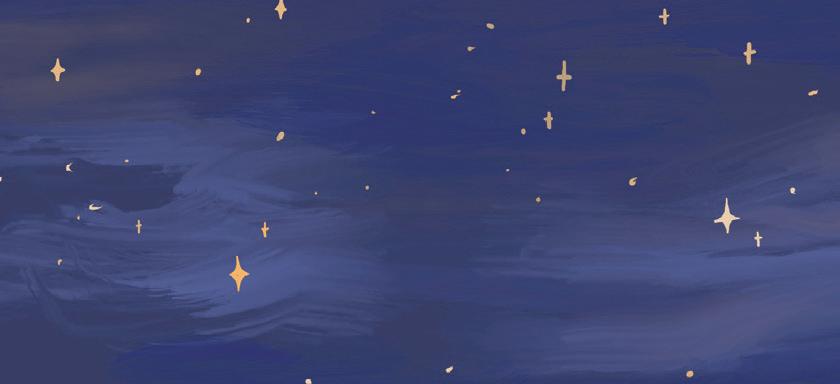

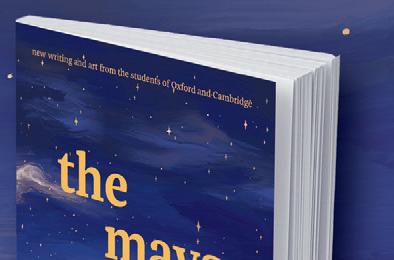


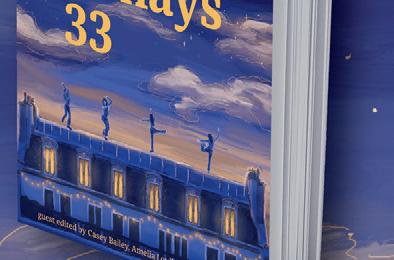


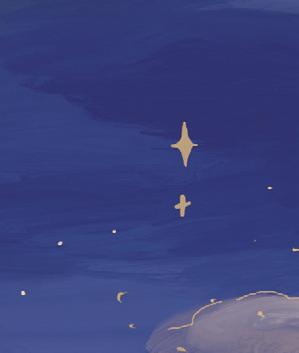
or challenged when waved by far-right groups, the ag is constantly re-signi ed and resisted, and in doing so stages a crisis of meaning. As Lucan shows, the rst sign of societal collapse is in the fracturing of shared symbolic language, shared identity. In the Pharsalia, the sight of mirrored standards annihilates the very possibility of an external enemy: Rome’s aggression, nding no outlet abroad, consumes itself. Civil war becomes a form of self-recognition and self-de nitioWn. e same mechanism is now at work in the UK, where the ag that once demarcated the island from the world is turned inward, repurposed to police the boundaries of ‘Britishness’ itself. Indeed, the anxiety that animates debates over St George’s Cross or the Union Jack is not simply about immigration, but about the instability of national identity in an age when the symbols that once guaranteed belonging have lost their authority. In a 2012 survey, only around 30% of respondents thought the ag representative of modern and diverse Britain, with a worrying three in ve to two thirds associating it with the British Empire. is erosion of consensus about the ag’s symbolic associations has become a locus for competing political narratives –imperial, insular, multicultural, and post-



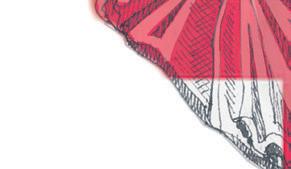




national – none of which can wholly contain the others. In both Lucan’s case and ours, the emblem’s instability is symptomatic of a deeper fracture: a polity uncertain whether its ag might still faithfully capture the identity it claims to represent.


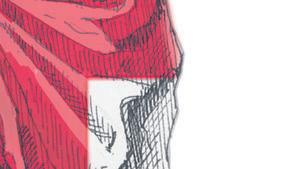
When Caesar’s and Pompey’s armies advance towards each other in the climactic seventh book, Lucan writes that the standards could hardly be torn up from the ground: “adrip with tears, only as far as essaly did they belong to Rome and to the state”. In other words, only this far could the war continue to masquerade as political. At essaly, the standards cross (like Rome itself) from the realm of public representation to the private site of warring imperial interests between Caesar and Pompey, resigning themselves (albeit reluctantly) to autocratic intrigue. It is a bleak outlook on Rome, and the Neronian emperorship it eventually gave birth to. Today, of course, we are faced with a polarized leadership of our own, and ags which point to a Britain unsure of what – or who – it includes. Whether we turn on each other, or whether we learn to live as one, depends on our recognising a shared civic space larger than any one faction or ag. Only then, as Lucan writes, can we tranquili vivere (live in peace).



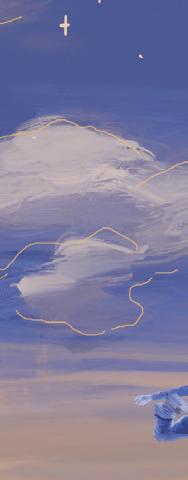













Evensong in Cambridge, especially in the legendary chapels of Kings’ and St John’s, remain a celebrated tradition. Yet the broader choral evensong tradition quietly thrives in college chapels across the city. Away from the usual crowds and touristy activity, colleges like Magdalene, Peterhouse, and Fitzwilliam provide musical experiences remarkable for their warmth, history and sense of surprise.
Today, evensong services are all too easy to miss in the rhythm of university life. Many students and residents see them as somewhat oldfashioned or overly formal, perhaps inuenced by the cassocks worn by the choir and a structured liturgical format, or imagine that these services are reserved for a narrow segment of the community. However, those who do participate often discover that evensong o ers a uniquely welcoming environment and a restorative pause outside of academic and social demands.
Magdalene
formal,
Magdalene’s evensong is “short, soothing, and gently theatrical,” ideal for winding down on a Sunday night or as a perfect lead-in to a formal dinner. e chapel, built in the 1470s for Benedictine monks, immerses worshippers in rows of candlelit stalls, storied memorials and dappled stained glass. e chapel is small but gloriously ornate, so each service feels intimate (even giving us a bit of drama at times). Like extras from e Crown once described; each aspect of Magdalene’s evensong works together to heighten im-
❝
One of Cambridgeʼs most welcoming – and unexpectedly rewarding –hidden rituals
Fitzwilliam
I began serving as chapel warden at Fitz a couple of weeks into starting life here, and it has been rewarding to both attend the services and help out behind the scenes. Fitz stands out for its modernity, its location slightly removed from town (though not that far), and something that may not be widely known across the Cambridge community: the moti c ship-like design throughout the college


mersion. e close arrangement of choir and congregation fosters an immediate and deeply engaging musical experience, while the presence of brass commemorations o er historical resonance. e service allows the tradition and formality of choral robes and ritual to coexist with a genuine sense of camaraderie. Many describe entering this chapel as like stepping into “a timeless hushed theatre,” where contemplation and community are balanced. Visitors are often encouraged to engage in physical acts of ritual, such as lighting candles themselves. For those in search of a tranquil experience or a chance for peaceful introspection, Magdalene’s evensong o ers one of Cambridge’s most memorable and persistently underrated atmospheres.




Some of the most interesting architectural aspects of the college are in chapel, and were realised by John MacCormac. e building has a crypt, intended to represent the “underworld,” while the main chapel space represents an “inhabited world”. e chapel space feels especially so, thanks to the expansive windows behind the altar, which look out to the College’s wonderful gardens. e exible layout allows the congregation to sit closer together than in many older colleges, creating a sense of community. e choir is positioned nearby, making the music feel engaging. e brick construction absorbs sound e ectively, giving the acoustics clarity without excessive reverberation. Everything in the chapel is movable, so the chairs can be arranged in di erent ways, allowing the space to function for a variety of purposes beyond worship.
Walking into Peterhouse Chapel, there is no attempt at grandeur – just stained glass and a striking sense of calm, under the glow of candlelight. Peterhouse evensong is described as “charming, small and delightful, almost jewellery-box-like,” and offers a moment for pause rather than spectacle. Services here are “a spur-of-the-moment spiritual adventure” where rarely more than a handful of attendees are present in the most genuine sense. e liturgical format makes for a short and well paced service, and it is also wonderful to hear higher woman voices mixed with the mens, creating a di erent sound to the traditional male dominated choral arrangement. After the nal ‘Amen’, the chaplain often lingers to chat, and everyone seems to leave feeling like they’ve been among family, not strangers.


ese services o er a rare opportunity for tranquillity and re ection within the routine of the city. Some of the youngest and best singers perform in evocative spaces that often escape notice. Unlike larger scale evensongs, a small college evensong invites personal connection and there is unique immediacy where you aren’t lost in a crowd, so each note feels closer. ese services are intentionally inclusive, with no expectation to follow the prayers or hymns. Even for those who are not religious, attending these services can be a source of genuine belonging. An evensong from a small college is surely one of Cambridge’s most welcoming – and unexpectedly rewarding – hidden rituals.
















ime and time again, rock and metal have been wrongly associated with doom and gloom. Sure, misery has found its rightful home in the heavier genres, but it’s not the only end of the emotional spectrum that hard rock knows how to cover. e re and fury of can provide the energy needed to overcome the challenges that Week 5 throws our way. However, even if you don’t want to wallow, metal can still provide the answer; sub-genres like bimbocore and rave metal centre around tongue-in-cheek self-empowerment and fun, providing the perfect distraction needed to keep the seasonal sadness at bay. is playlist covers everything you’ll need for the week, so here are my personal favourites from the selection, from deeply meaningful to simply mosh-friendly.
back to when I saw Skindred live, a performance brimming with the same energy. Frontman Benji Webbe made a concerted e ort to engage with the audience in full with a level of authentic charisma that continues to inspire me in my day-to-day. Especially in Week 5, I think we could all bene t from being a bit more Benji.
‘Might Love Myself’ – Beartooth

a techno-heavy bass before a seamless transition into a bop-friendly chorus and a laddish cheering section t for any college sports social.





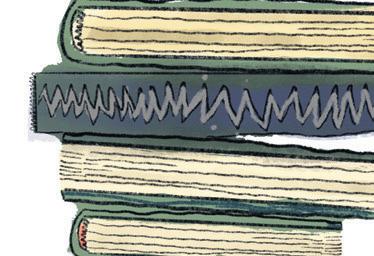
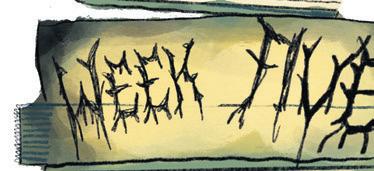


Unstoppableʼ – Skindred



We open with an immediate thrashing of both guitars and metal stereotypes. is track features on Welsh reggae metal band Skindred’s most recent LP Smile, an album full of genre-bending, fun-loving metal goodness. When it gets hard to drag yourself to your faculty library, Unstoppable provides unignorable energy straight from the opening beat. e lyrical boost comes with equal immediacy; the rst verse boldly and unequivocally reminds us that “anything they throw at [us, we’re] gonna get through it”. e persistent vitality of this track takes me
When imposter syndrome is at its most rife, listening to this track can feel radical, even uncomfortable at rst. If you’re stuck in a true emotional rut, start by ignoring the lyrical themes; Caleb Shomo’s vocal has a powerful depth, gradually building up over this track’s rousing melodies before sprinkling in the most satisfying ri s. ere’s even one in the second chorus that he celebrates with a “woo!” of child-like wonder. It’s at this moment during my rst listen of this track where a switch icked. It’s hard to ignore a message of selfcelebration when it’s so clearly exempli ed; if Caleb Shomo can interrupt a song to honour his vocal skills, then I think we too have the right to stop, take a breather and acknowledge our own achievements from time to time. Once this lands, you start to sense this track’s radicalism. It’s a strong statement that can be hard to give yourself the permission to say, but, if you are making progress in the areas of your life that matter to you, then why shouldn’t you let yourself feel good?
In the words of Limp Bizkit, youʼve just got to keep on rollin’, baby
‘Problem’ – Set It O



For those wondering, this is indeed a rendition of the mid-2010s pop banger by Ariana Grande and Iggy Azalea, one of many incredible (and incredibly cheesy) rock covers borne by the Punk Goes Pop series. As much as I love metal, it has to be said that pop lyricists sometimes have a better handle on subtle, less emotionally charged self-empowerment. However, Set It O add a satisfying level of menace to this version that proves extremely cathartic in times of stress. e familiarity of a pop cover may bene t anyone newer to rock and metal. A sense of comfort may be exactly what you need, and this refreshing take on a nostalgic hit can provide exactly that.
‘We Got e Moves’ – Electric Callboy
Once I’m done crying over the profundity of some of Beartooth’s lyrics, I like to engage in a 180-degree tonal shift to make sure I don’t have an existential crisis alongside the essay ones. Enter rave metal. Rave metal underscores the melodic and lyrical conventions of the club with instrumentals t for the pit. ere’s something especially iconic about hearing classic fry screams and guitar shreds over
Week 5 is a talking point for a reason. You’ve been in the Cambridge term for long enough to start feeling the e ects, but not quite long enough to see Christmas at the other end of the tunnel.
But the worst of it is only here for this week, and will go by quickly. In the words of Limp Bizkit, you’ve just got to keep on rollin’, baby.
Graduation. It’s coming. For all of us. Something so dreadful it doesn’t even bear thinking about, at least not during Michaelmas. When it eventually happens, what will become of those of us left without a comfortable grad job? What cruel fate is awaiting once the bliss of our student days becomes a distant memory?
ese questions are as pertinent today as they were 30 years ago, when Noah Baumbach, whose latest feature Jay Kelly opens later this month, released his debut lm, Kicking and Screaming (1995). It follows a group of friends clinging on to their college days as they struggle to move on with their lives in the year after graduation. They live in a house in their old college town, and spend all their time at the same bar, in the same clubs, and on the same campus. For anyone seeking a comprehensive guide of what not to do after university, or a glimpse into what our parents’ student days might have looked like, this is essential viewing.
Grover (Josh Hamilton), a talented aspiring novelist who hasn’t written anything since graduating, spends the year pining after his ex-girlfriend Jane (Olivia d’Abo) who has left for a year abroad, while refusing to answer any of her messages. Max (Chris Eigeman) exempli es the group’s debilitating pessimism with frequent one-liners equally witty and despairing. Otis (Carlos Jacott), who was set to depart for graduate school in Milwaukee until bailing out at the airport, is plagued by social awkwardness so debilitating that he would rather swallow food in his beer than ask for a new one. Skippy (Jason Wiles), meanwhile, lives vicariously through his still-at-college girlfriend Miami (Parker Posey).

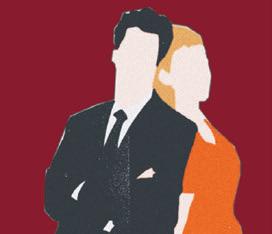











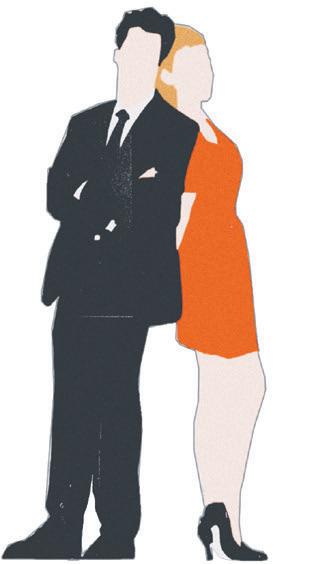
Despite how pathetic these characters are, there’s something enviable, even aspirational, in their 90s slacker lifestyle. Sure, they all dress e ortlessly well – even Otis’ pyjama top with a tie and blazer would draw admiring looks on Sidgwick Site – but the modern appeal of Kicking and Screaming’s world goes beyond its visual style. In one moment, the characters gather round the television for several seconds to see whether a grease stain in a detergent advert will be successfully removed – would our generation have the attention span to watch this without 2x speed? Friends test each other on trivia, and debate the correct answers rather than turning to Google’s AI summary. e jukebox at the bar, the video rental store; so many of the ways that time is passed in the lm would be made impossible by modern technology and algorithms. In an age where everything seems so readily accessible, watching these tragic characters come up with creative and intentional ways to ll their days is somewhat inspiring. Do we yearn for the way people used to be bored?
Kicking and Screaming is a lm of conversations, usually between the same friends, and usually for no purpose other than to pass the time. It’s typical of a style associated with the 90s, one epitomised by Seinfeld, “the show about nothing”, where co ee shops and dive bars are the settings for witty dialogue and endless ri ng. e lm revels in awareness of its own futility; Grover’s writing in class is criticised by Jane for depicting characters who “spend all their time discussing the least important things.” is self-e acing nod from Baumbach is made even less subtle by the character he plays, Danny, whose chief contribution is posing conundrums like “Would you rather f*ck a cow or lose your mother?”
There’s a naivety in the lm’s aimlessness that is distinct to the culture of the 90s. A generation of men too young to remember the Vietnam War, living in pre 9/11 America, muse that they “wish [they] were just going o to war” rather than have to endure the horrors of a comfortable transition to adulthood. Afforded nearly every privilege and opportunity, they squander them: Grover is o ered a at in New York and an internship at e New Yorker
by his father, but won’t even return his message. ey seem to be aware of just how good they have it, but this only makes their wasteful inactivity all the more depressing.
❝
For anyone seeking a guide of what not to do after university […] this is essential viewing
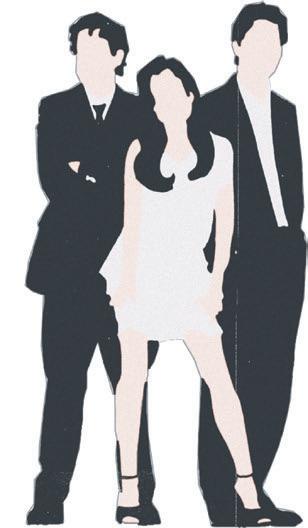

Eventually, something has to give, as this self-induced paralysis cannot go on forever. As Grover puts it: “Despite my intense e orts to do nothing, things happen anyway.” Back at the airport a year later, Otis is nally heading to graduate school and Max has applied for a job at the University and is looking to move in with his girlfriend. Prompted by his friends’ progress, in a speech worthy of the best 90's rom-coms, Grover begs the airport receptionist to get him on the next ight to Prague to visit Jane. In this portal of new beginnings, they have defeated their selfdestructive impotence and should inspire us all to do the same, not to waste our lives after graduation in the depths of self pity. When this moment of triumph is broken as Grover doesn’t have his passport, the receptionist’s reply is the mantra that will comfort us procrastinators at the worst of our post-uni inertia: “You can always go tomorrow”.
Singapore-born, New York-based lmmaker Kirsten Tan is known for creating lms that contemplate what it means to be human. From growing up in Singapore to spending time in South Korea, ailand, and New York, Tan’s journey has shaped both her identity and her art. Born and raised in Singapore, lmmaker Kirsten Tan recalls “always feeling a little sti ed [and] a little su ocated” by the “socio-cultural rhythms of the city”. As she puts it, “when I was a student, I knew I wanted to leave”. Tan has been a cinephile for as long as she can remember. “I knew from a very young age that I wanted to make lms,” she said, describing herself as being “addicted to cinema as a medium”. Film became her window to the world: “through cinema I understood culture, understood history, understood life”. Yet in Singapore, she found no “valid path forward” in pursuing lm as a career, and no older lmmakers to emulate.
After studying literature at the National University of Singapore and lm at Ngee Ann Polytechnic, Tan embarked on a year-long residency in South Korea, an experience that marked a pivotal shift both personally and professionally. e solitude of living abroad gave her a sense of self-determination, free from familial or societal expectations. “As an artist, it’s important to understand what solitude feels like,” she re ected, recalling the strange mix of liberation and unease in being “semi-terri ed” by the feeling that if she disappeared one day, “no one would even know”.
South Korea expanded her cinematic horizons. “Learning about Korean cinema was great when I was living there because there were just so many great Korean lmmakers,” she said. For the rst
time, she was publicly recognised as a lmmaker – “this is Kirsten Tan, the lmmaker” – a validation that allowed her to fully embrace that identity.
❝ rough cinema I understood culture, understood history, understood life
Following South Korea, Tan spent several years in ailand, attracted to what she describes as the “looseness of living” and freedom from rigid social codes, before pursuing an MFA at New York University’s Tisch School of the Arts. She has remained in New York since, though her projects continue to take her around the world. “Everywhere I’ve lived has changed me a bit as a human, and therefore as a lmmaker”, she re ected For Tan, “ideas literally come from everywhere”. e challenge is not in thinking of them but “knowing which to follow”.
Her lms often contemplate existential questions: “What does it mean to be alive? What does it mean to be human?”. She describes her work as “humanist” and “socially engaged,” and notes that her queer identity has deepened her a nity for outsider stories. “Because of my queerness, I have always just naturally resonated with outsiders and outsider stories,” she explained.
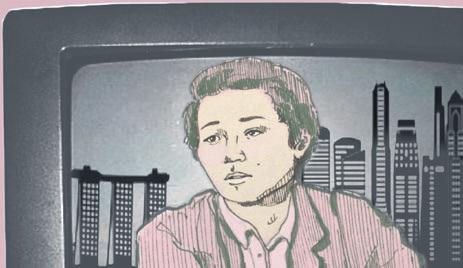


Tan is currently working on a lm, Crocodile Rock, which explores queer culture in 1990s Singapore and delves into the story of the city’s longestrunning lesbian bar. She rst learned of it after the 2022 repeal of Section 377A, a colonial-era law that criminalised sex between men. She notes her surprise at how older queer women knew of the bar well, yet it was unheard of in her generation. “In certain generations above me, they were just so used to erasing themselves and their stories, and not talking about it outside the community,” she observed. “As a result, there are a lot of
gaps in Singaporean queer narratives that still have to be bridged”.
e lm explores not only the hidden world of lesbian bar culture but also how queer women of that era perceived themselves. Some distributed condoms during the HIV/AIDS crisis, acts that read as advocacy today but which they never labelled as activism. “For them, it was just something they did,” Tan explained. By weaving these generational shifts into the narrative, Crocodile Rock is both historically rooted and deeply personal. It seeks to preserve queer memory while interrogating how identity and visibility evolve across eras.
❝
What does it mean to be alive? What does it mean to be human?
At the heart of Tan’s practice lies a simple hope: that her lms help audiences feel their own lives more deeply. “Maybe certain experiences that have happened in my lms are re ected in their own lives, such that they feel maybe a little less lonely,” she said. For her, cinema’s power is its ability to create shared experiences. “It’s almost like a mirror e ect - if someone you know has experienced a certain thing already, then you feel less lonely,” she re ected. “Films can do that”.
Last August, e Preston Society debuted their new Instagram page with the line: “After a period of hypersomnia since 2017, e Preston Society has awakened.” Inspired by the society’s impressive legacy, which boasts a host of talented performers like Matthew Holness and Rachel Weisz, its current co-President, Martha Alexander, teased a revival that would see a mix of theatre and comedy that coming Michaelmas term. As we move through a new academic year, Preston – Trinity Hall’s dramatic society – continues to grow, reecting the enthusiasm within the college for such a project. omas Gladstone, who joins Martha this year as co-President, told me how indispensable the college’s support has been, notably from the College Master, Mary Hockaday. is support is re ected in the society’s ambitions. Martha echoes this sentiment, noting that it’s vital for college drama societies to receive the platform they deserve, so that they might act as a bridge into the wider theatre community. omas tells me he wouldn’t have chosen a college without a drama society. Having worked Trinity Hall’s summer open days myself, this was a question I was
It was a dark and rainy Sunday night when I met Cecily Chitty. e President of the Emmanuel College Revived Dramatic Society (REDS), we met in the unconventional interview environment of her kitchen, which was piled up with unwashed pots and pans. With the relative peace of the weekend drawing to a close, Cecily kindly traded her R and R for our interview, on the provision that she could meal prep while we chatted.
❝
I love theatre that makes me feel something, that sparks my imagination
So it was while Cecily started chopping up the tomatoes for her mum’s signature sauce that our interview got under way. is is at least the second time that REDS has been revived, so I started by asking about the history of the society. “ e last time that REDS was fully active,” Cecily tells me, “was February 2020 when we performed Accidental Death of an Anarchist. So, we have been inactive for ve years. I think people have tried to bring it back but it e ectively got killed by COVID and the people who were in charge at the time then graduating”.
Dicing onions, Cecily explains why the society has been so on and o : “People take interest in trying to revive it, then it looses steam. It’s particularly hard to revive a theatre society because theatre is so expensive compared to
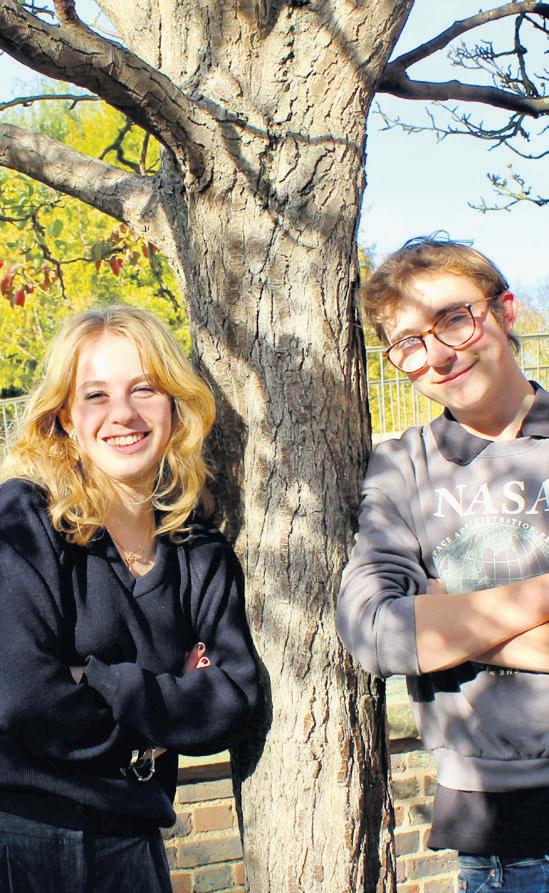
faced with a lot: “Which colleges are best for theatre?”. While Pembroke easily rolls o the tongue in answer, smaller dramatic societies like Preston are gaining momentum: a testament to the creative spirit that pulses through colleges.
Moreover, as Martha comments, there is a “lack of college drama societies doing comedy,” and Preston aims to ll this gap. By hosting smaller-scale smokers and comedy nights, they aim to provide that crucial rst step into comedy: blending sketches, improv, and theatre in low-pressure settings. As they expand the society into both comedy and theatre, the pair remain committed to providing the open, inclusive environment that brought them here to begin with.
eir jovial approach to performing was best exempli ed by their recent production of Henry IV, Part 1, performed last Easter in the Fellows’ Gardens of Trinity Hall. After such an intense academic year, these light-hearted productions are exactly what Cambridge students long for. omas describes the joy of working in college gardens such as these, which are just “made for theatre”. Access to these beautiful open spaces is a unique element of college societies, and both omas and Martha reminisce about the joy of shaping performances within such an environment.
I had begun the interview with the question, “ eatre or lm?” Before coming to Cambridge, omas admitted he would have answered the latter. However, he praises the Cambridge theatre scene for shifting his opinion towards the former. As we close the interview, he points now to the “joy in nding something special out of every project”.
e Preston Society has awakened
Martha seconds this, adding that it is “never too late” to be involved. In a university so steeped in historical legacy, it is important to remember that, at the end of the day, this is all a bit of fun. Looking ahead, the pair tease a potential production of a J.B. Priestley play. Such a production, he notes, would honour both Preston’s dramatic legacy and the tradition of thought-provoking theatre. With momentum building, the Preston Drama Society has not only awakened, but is thriving.
My penultimate question: “How can we get involved” is met with a unanimous answer –“just come along”.
most societies. If you are not already on a model like Pembroke and Corpus, it is quite hard to start, because it’s di cult to convince the college that it’s going to be worth it”.
Just as I began to ask about how Cecily’s experience of Cambridge theatre last year has driven the re-birth of REDS, the sauce began to bubble over, and Cecily rushed to turn down the hob. Crisis averted, she tells me: “I wanted to make sure that we could try things out and feel less pressure. Take lighting, for example: it would be crazy to go straight to lighting an ADC main show. College societies give you a chance to learn the ropes. It’s a chance for people to get to grips with Cambridge theatre for the rst time”.
Next, I asked about REDS’ Christmas production: “We are doing a production of Box of Delights, an adaptation of the classic Christmas novel by John Mase eld which was made into a BBC show in the 1980s. I rst saw the adaptation we are using when it was in its original production in 2017. My dad read me the book when I was a kid; I’ve always loved Christmas!”
She continued over the sound of the sizzling pan: “I love theatre that makes me feel something, that sparks something in my imagination. is show is very magical, and in terms of how you bring that to life, if it were a TV show you could now do it with CGI and it would be very literal, but the theatre is very much about imagination, and that brings the audience into it a lot more”.
Building on our earlier discussion about the di culty of launching a college theatre society, I wondered how running a show in college di ers from larger venues. “It’s very di erent,” Cecily told me earnestly. “A big issue is that we don’t have the kind of equip-
ment available that you would have doing a show at the ADC or at Corpus where there are lights already in the building. Whereas here there are a few lights, but we don’t know exactly what they do and we’re going to have to rent some which will be expensive. And, it is more di cult to use a space in the college that wasn’t design for theatre”.

e funding process, too, is di cult for drama societies to navigate. While washing a bruised pepper, Cecily tells me: “We’re still working it out. It’s all about keeping the momentum going because the college is so unused to having a drama society. e most expensive things are the rights to the play, which costs hundreds of pounds and the need to rent lights for three days, if not four days. ere hasn’t been a truly active drama society under our current Master, so the college just isn’t used to having a theatre society’.



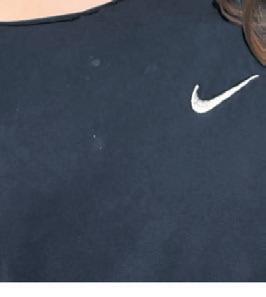


But the complexity of starting out has not at all dimmed Cecily’s passion for theatre and vision for REDS. REDS is set to be so much more than just its termly production: “We’ve had a social in Emma Bar. We have a play reading of e Importance of Being Earnest next week. Excitingly, we are collaborating with Emma Puppetry Society to bring the play to life, it is a big team effort and the wider social events are so important for that, for giving people the con dence to get involved in the society”.

After we had nished cooking, and had a kitchen chit-chat while rinsing our pans, Rosie, the society’s Secretary, came to join us before they went straight into a committee meeting. e overall impression of our stove-side chat is that Cecily and the team are driven, excited, and ready to go for their debut production later this month.
Box of Delights (22-23 November) launches with a 14:00 matinee in Emmanuel College's Queen’s Building.


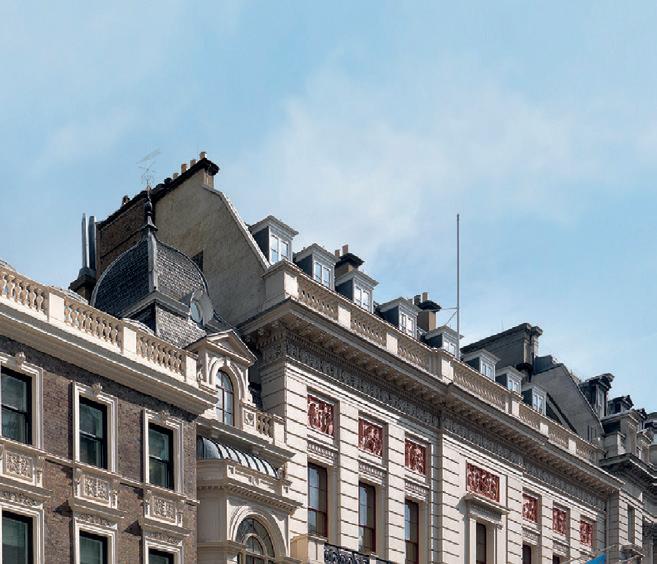
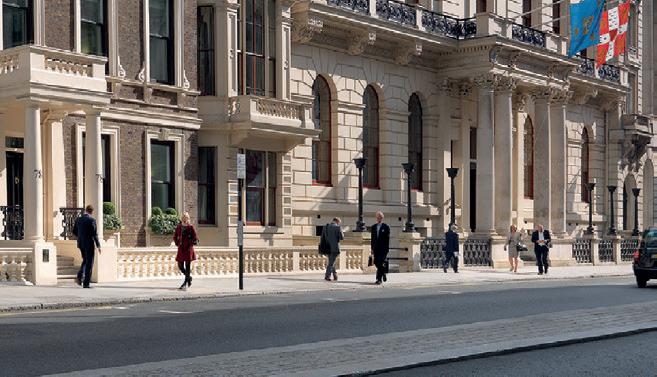


For nearly 200 years alumni have chosen to take up membership of a spacious and elegant private club in the heart of London. The Oxford and Cambridge Club in Pall Mall is the perfect place to meet for a drink, entertain friends and colleagues in magnificent surroundings, play squash, take a break, host a party or just find a quiet corner to prepare for a meeting. A thriving social scene, sports facilities, a lively calendar of events including talks, tastings, dinners and balls, an exceptionally well-stocked library, extensive wine cellars and more than 40 bedrooms mean our members use their club for recreation, relaxation and business - and now you can too. For details on membership or a tour of the Club house on Pall Mall, please visit www.oxfordandcambridgeclub.co.uk or call 020 7321 5110 Oxford and Cambridge Club @oandcclub
November
Harold Ofeh: Mmm Gotta Try a Little Harder, It Could Be Sweet Kettle’s Yard, 11:00am 20 November Sarah Dunnant Newnham College 21 November
Games Night Waterstones, 6:00pm 22 November
Blacbirds: Georgia Conlon poetry workshop TBC
November
Museum Late: Made in Ancient Egypt he Fitzwilliam Museum, 6:30pm














Sport is an everyday label that we take for granted. Rarely do we ask ourselves what makes something a sport. It is usually on the television at your local pub, or what earns you the prestige of donning a Cambridge Blue jumper so everyone knows you play it, and that you are good at it. It is one of those givens that few have tried to unpack
I remembered a jovial conversation I had with my friends upon discovering we lived on the same oor as a Tiddlywinks World Champion. We were admittedly taken aback by the unconventionality of it all – who knew it was a competitive sport? But I realised I probably could not have justi ed to you why my initial reaction was one of shock rather than admiration. Was it because tiddlywinks was something new? Not really, since it has been around since the 1890s. Or had this been a wake-up call to some internalised misogyny causing me to take it less seriously? at wasn’t it either, because in my mind I already associated tiddlywinks with men – though I seem to have been mistaken here also. So what was it? I did not want to say it out loud but I knew what I was thinking: is it really a sport? But that’s just it: what is a ‘real’ sport anyway?
To an extent, we do have a ‘Cambridge culture’ here. Although I would not say we live in a wholly homogenous bubble, we certainly do have common ways of thinking and approaching things. Given this, I sought to deconstruct these shared assumptions by consulting the members of our sporting community.
Going into this, I assumed that the results may yield a degree of gender bias, or at least a level of preference toward male-dominated sports. Instead, unsurprisingly, I was rst and foremost met with a question in response to my question: “well what do you mean by a real sport?” I assured my interviewees that this was not a supervision, but nonetheless it was an understandable counterpoint. In reality, the idea of a real sport is less of a typology and more so one of those shared implicit narratives that many of us are broadly familiar with or have probably grown up with, irrespective of whether we agree with it or express it out loud.
of student life, wondering if we are actually boring. In a similar vein, I think it’s safe to assume that I am not the only one who has a rough idea of what ‘real’ sports are. Football, running, and swimming are just a few of the rst things that tend to come to mind. A decent metric I thought of when clarifying my investigation was: “how impressed would you be if someone told you they played this sport for Varsity?”

nitely real sports.” When probed to think of what was not a sport, she informed me of the existence of e-sports. ey even had their own Olympics. “It’s not typical,” she continued. “ ere’s not much physical activity, and therefore I personally wouldn’t consider it to be a sport,”

albeit, she did add that they are de -
“So what type of person do you associate with esports then?” She joked: “Not
❝What constitutes a real sport is ‘in the eye of the beholder’ – it’s a spectrum
met and
In asking around, I was met with a collection of fairly similar responses. A Master’s student at Downing said that the bias on this matter would lean towards the more physically exertive end of the spectrum. at is, sports like rugby or wrestling garner a lot of respect because of the demand and even the danger. As the sport gets less and less physical, people will tend to veer away from classing it as one.

e discourse surrounding chess as a sport, for example, potentially points to this pattern. e same could be said for darts or snooker; those who are not invested in it as players, or watchers, often pay it little mind when listing examples of sports.
A second year Caius student told me that rugby is “objectively” a sport. When I asked him what he thought about tiddlywinks, he credited that it was certainly “detail oriented,” and “respectable,” but mentioned that it is not “physically active in the same way football is,” making it not a sport in the same sense.
❝
We have a long way to go in opening up to more unconventional ideas of what makes a sport
Another example of this could be the idea of ‘fun’. Typically, we are familiar with the mainstream idea that fun at university looks like going out, and doing the things that are only socially permissible when you are 18. Many of us measure up our pastimes with this idea of what we are supposed to be doing as part
– likewise, it distinguishes tiddlywinks from other games, such as chess, which some mistakenly demand should be recognised as a sport.”

A pragmatic second year at Magdalene stopped me in my tracks, expressing that what constitutes a real sport is “in the eye of the beholder” – it is a spectrum.
In conversation with a second year at Fitzwilliam, it took a bit of back-andforth before I saw his point of view. At rst he echoed a similar rhetoric: that what is seen as a real sport tends to be an endurance sport. But in digging deeper, he admitted that the commercialised elements of some sports have eclipsed the value of the sport itself.
“So when sport is more of a commodi ed pantomime you don’t respect it as much?”I asked. He responded: “It strips the sport of any re and authenticity”.
Consulting one of Cambridge’s more niche sports, I liaised with the Cambridge University Ri e Association (CURA) Secretary, Ana Vijay. She said that, for her, “a sport is anything that needs you to apply coordination skills to succeed competi-
tively in it”.
Despite the fact shooting isn’t as physically exhaustive as other sports, the line between winning and losing is a thin line, determined by
“If your trigger nger, eyes, and positioning
aren’t coordinated, what you think is a great shot could easily be- come a mediocre or bad one. Just like football teaches you to use footwork to respond to what you see and score, shooting teaches you to pull your nger back at the perfect time when your sight picture tells you to shoot.” It seems that the high stakes which come with mastering this skill contribute
greatly to its status as a sport, separating it from inattentive hobbies.
My investigation yielded the expected results. It does seem that strength and physicality dominate perceptions of what makes a sport. In addition, room was made for strategy and detail, but this alone does not seem to constitute a status of ‘sport’ for most people. But there was one last opinion that I realised ought to be a part of this conversation. I had to go back to where it all began and confront the sport that begged the question in the rst place: tiddlywinks. In spoke with CUTwC (the Cambridge University Tiddlywinks Club). Petroc Vyvyan-Jones, the publicity o cer, had an interesting perspective on his club's claim to being a sport.

My next interviewee, a second year Jesus student, shared a similar concern to me about the gendered politics behind our assumptions of which sports are to be taken more seriously. “Sports like pole, gymnastics and ice skating are underemphasised just because they’re more female-dominated. ey are de -
Having been “reliably informed by a veteran tiddlywinker [that] a prospective sport must ful l certain criteria,” Petroc concluded that tiddlywinks satised them all. “Speed, manual dexterity and physical strength, usually associated with the mainstream sports of this world, are essential factors in tiddlywinks; the greatest understanding of winks strategy means little without these fundamentals. is unique combination of mental and physical attributes constitutes the di erence between a casual player like me and a world champion
Informing me of the sport’s longstanding history of tournaments and personal rivalries across the world stage, I realised that my ignorance of the sport may have been more personal than general. CUTwC itself was central in propelling tiddlywinks globally, and as a sport. Its in Cambridge as an institution and community are far more deeply embedded than I thought.
formalising it roots
Jovially, Petroc added that “the strongest evidence for our status as a sport, however, is our ne-tuned ability to end meetings in the closest pub for a drink, alcoholic or otherwise”. is camaraderie building activity is, in Petroc’s eyes, “perhaps the principal reason for [their] domination of Oxford’s
I think it’s safe to say that, as a sporting community, we have a long way to go in opening up to more unconventional ideas of what makes a sport ‘real’. Personally, I enjoyed exploring my own internal biases on the subject. I would now say my answer to the question “what is a ‘real’ sport?” is far more vague and inclusive than before.
And I don’t think that’s a bad thing at all!





What is the best and worst bit about being captain?
e best part is unlocking my competitive side to drive everyone throughout the match. I like to be very vocal on the pitch and constantly high ving after each possession to keep the morale high. e worst bit about being captain is spamming people on WhatsApp about their availability!
How do you manage to balance sport and work?
I actually think playing sports makes it easier to balance work! It’s great to have dedicated breaks set aside, and then I can manage my time around that and complete work beforehand. It’s also a great way to completely switch your brain o , so you’re not thinking about anything academic.
What does a typical training session look like for you?
Training usually involves a warm up, followed by several drills focussing on a particular skill / tactic. en we go into game play at the end, where we try to implement the skills we’ve been working on in the session.
Do you have any predictions for the upcoming season?
Last season we got promoted to Division 1 of the Cambridgeshire league so the matches are a lot harder, but our team is strong and we’ve already come out with some great results, so I think we will keep this up and solidify our place in this division for next year. As for Varsity, I see a win in our future…
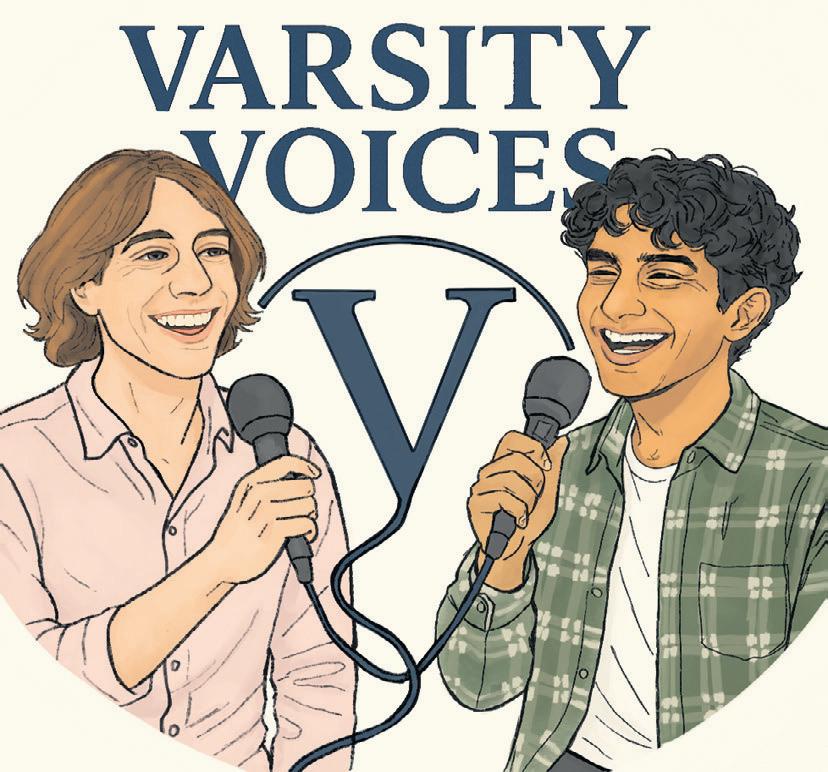

Under the lights at a refurbished Grange Road, anticipation was high for the spectacle of Ireland’s oldest rugby club, DUFC, taking on the Blues on Grange Road’s new state-of-the-art Mumford Pitch. Trinity College Dublin had won the last few xtures between the pair and were seeking to repeat their narrow 2724 home victory from two years ago. On this occassion, a stop-start performance from the home side was not enough to stop the tourists, as the Dublin-based team strung together a relentless and complete display in a 64-21 thumping.
A healthy crowd including a lively Irish contingent piled inwto Grange Road on the same day a new all-weather pitch was o cially opened at the ground. e reworks on the pitch, however, were from the visitors – an early lineout steal, followed with the Irish pack piling into a powerful rolling maul and crashing over the tryline from ve metres out. – ve
points in only the second minute. It was four minutes later when Trinity found their second try; a weaving, rolling maul forming this time on the far side of the eld with the same result.
High energy and a franticness then developed, with a try-saving tackle from DUFC’s O’Sullivan giving the Blues some hope they could stay in it. A penalty for hands in the ruck followed, and the unstoppable force of another rolling maul from the lineout led to Trinity’s third try of the match. eir lead was 0-17 after Quirke added the extras for his second conversion of the night – with only ten minutes on the clock.
e momentum sharply swung Cambridge’s way after a Trinity infringement saw them temporarily reduced when the referee gave marching orders with a yellow card. A period of sustained pressure followed from the Blues as they resolvedly ventured, for the rst time, into the opposition’s twenty-two.
Nate Bottomley’s precisely judged cross-field grubber kick to the leftwing,looked certain to see Cambridge nd their rst score of the match, but the ball agonisingly slipped through Cam Martin’s ngers, much to the relief of the visitors, while the Blues were left hands on heads. In the 23rd minute Cambridge eventually capitalised on their man advantage. A rolling maul, which was swiftly becoming the story of the night, saw prop Fin Edwards score, imbuing a renewed sense of hope as the di erence was closed to only ten points.
Half time loomed and looked to save the home side, but it was their turn to be reduced to fourteen men after a yellow for playing the ball on the oor saw Trinity ve metres out once more. e tries did not stop coming either, and once again a rolling maul extended the visitors' lead. After quickly regaining possession from a scrum on the halfway line, Trinity’s Murphy superbly gathered the ball
What actually is Kor all?
from a piercing grubber to surge under the posts, the two Cambridge defenders only able to chase in vain. A comfortable lead of 31-7 belonged to the Irish as the whistle went for half time.
DUFC returned to the eld after only a couple of minutes, as Cambridge looked to regather themselves in the changing room before rallying to make the match a closer contest. It looked momentarily like this might be the case, until the 49th minute when Trinity scored their sixth try of the match.
Both sides made a number of changes close to the hour mark to nish the match strongly, and the game’s highlight for the home fans swiftly followed.
Cambridge captain George Bland found a yard of space inside the Trinity half and produced a neat chip over the backline, before superbly collecting his own ball to y over the line and make it 14-38.
Four more Trinity tries subsequently put the seal on a magni cent perfor-
mance as Cambridge could only summon one more score. e nal scoreboard read 21-64, with the visitors deserved victors after a complete display of raw mauling strength, pace throughout the backline, and lineout superiority. Trinity’s nous and high-conversion rate inside the Cambridge twenty-two meant they never trailed and – despite a couple of stylish Cambridge tries – the Irish always appeared to be in control.
ere were positives to take from the spirited Blues’ performance, at times going toe-to-toe with a classy Dublin out t, who had won six of their eight games of this season. Cambridge’s lack of game time was evident, and the side will look to grow in con dence as they turn their attention towards nishing the term strongly and a series of attractive, historic xtures against the RAF, Army and Navy in the new year.


Ben Lubitsh catches up with Kor all captain Harriet Knights
Kor all is a Dutch sport, often described as a cross between basketball and netball. It’s a mixed gender sport with all players taking on attacking and defending roles which makes it a lot of fun.
Is it easy for beginners to join Kor all?
Yes! Most people haven’t heard of kor all before joining the society so we are completely beginner friendly, and will teach all the basics. We run sessions with “Give it a Go” on Saturday mornings which are open to everyone, and if you want to get involved further you
can drop us a message on Instagram, @ camunikor all
Who is your sporting idol?
For my rst two years with CUKC, we were coached by Cambridge alumni Bethany South who no longer coaches us but still plays kor all for Cambridge City. I really look up to her as a player, especially since she captained the team while she was at Cambridge, she is amazing to watch and her competitive spirit is inspiring.
What is your best and worst sporting moment?
My best sporting moment was prob-
ably scoring the equaliser against Oxford at Varsity this year, especially since it was in Cambridge so lots of my friends and family came to watch! My worst sporting moment was playing Varsity 2024 on a twisted ankle and then going clubbing in Oxford, only to wake up and not be able to walk, and having the rest of the team carry me around all day.
Do you have any pre-match rituals?
I think a loud hands in at the start of the match and lots of high ves really sets the tone for the game.